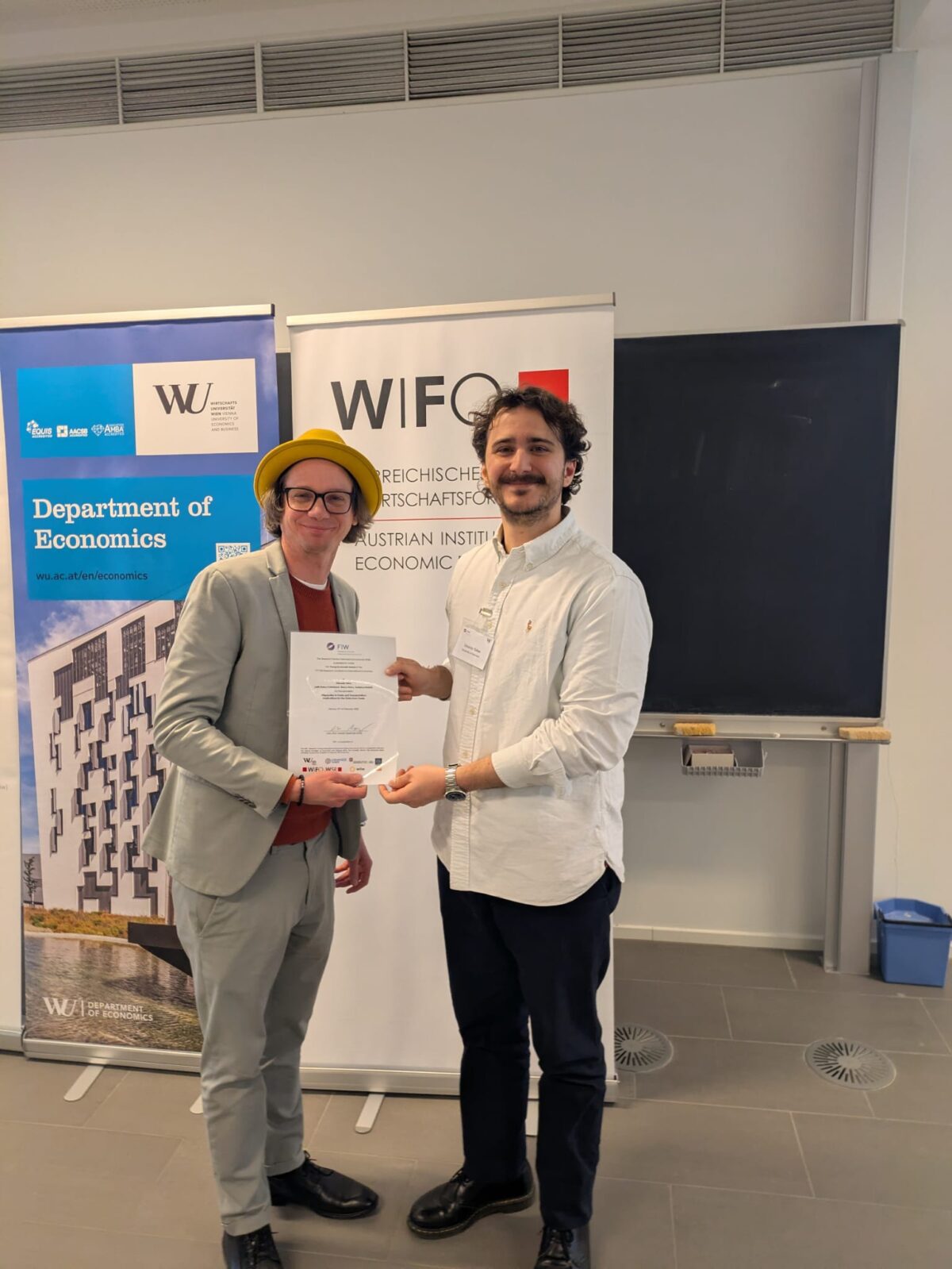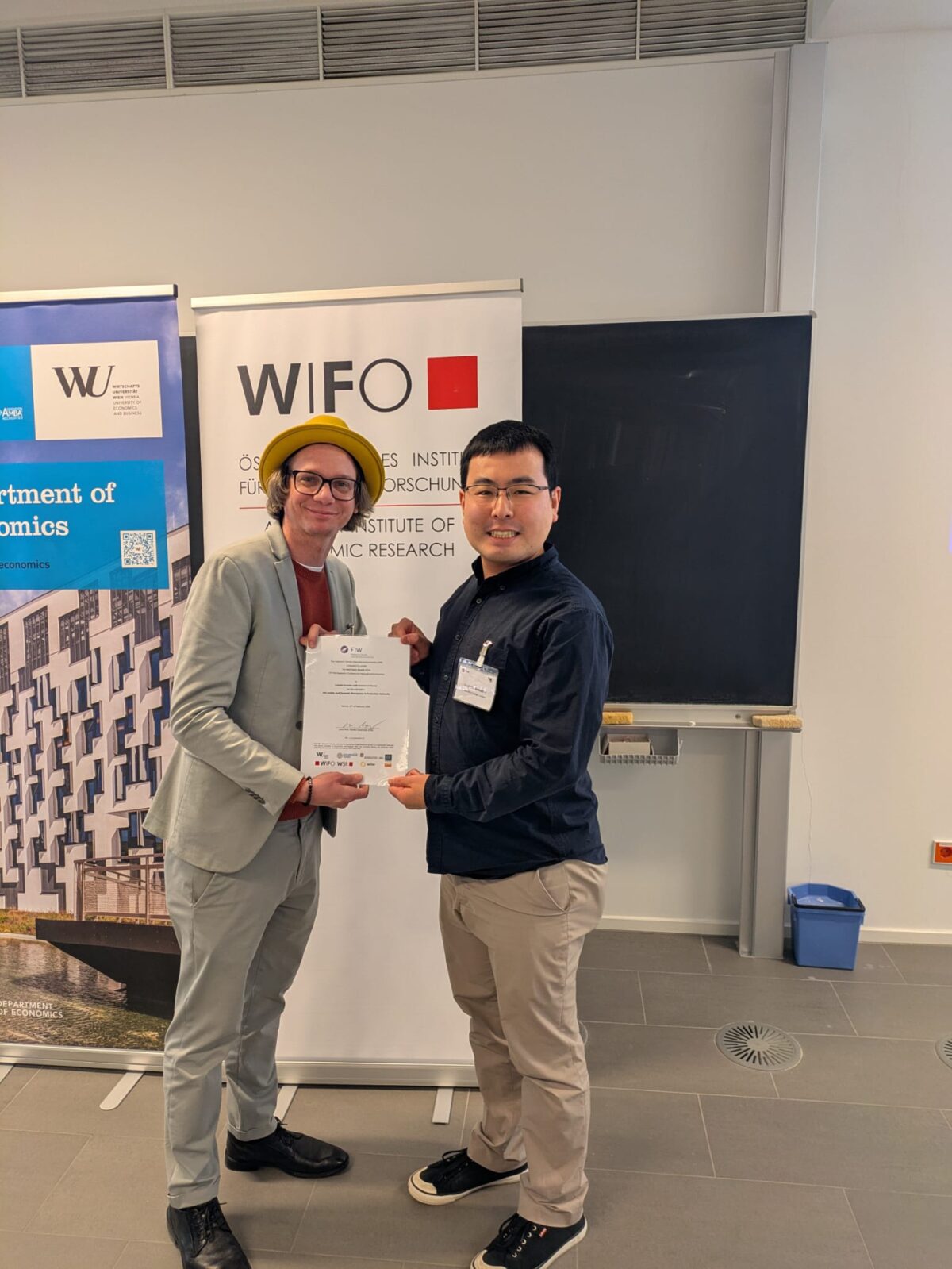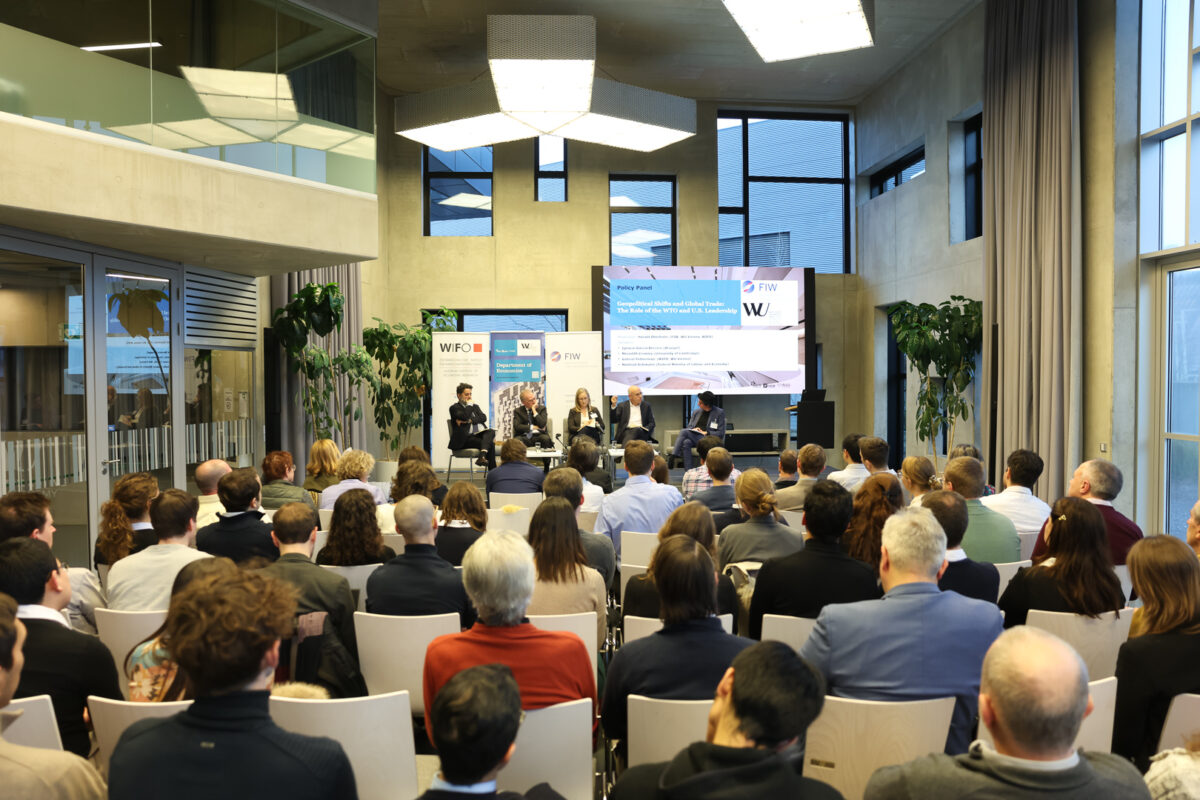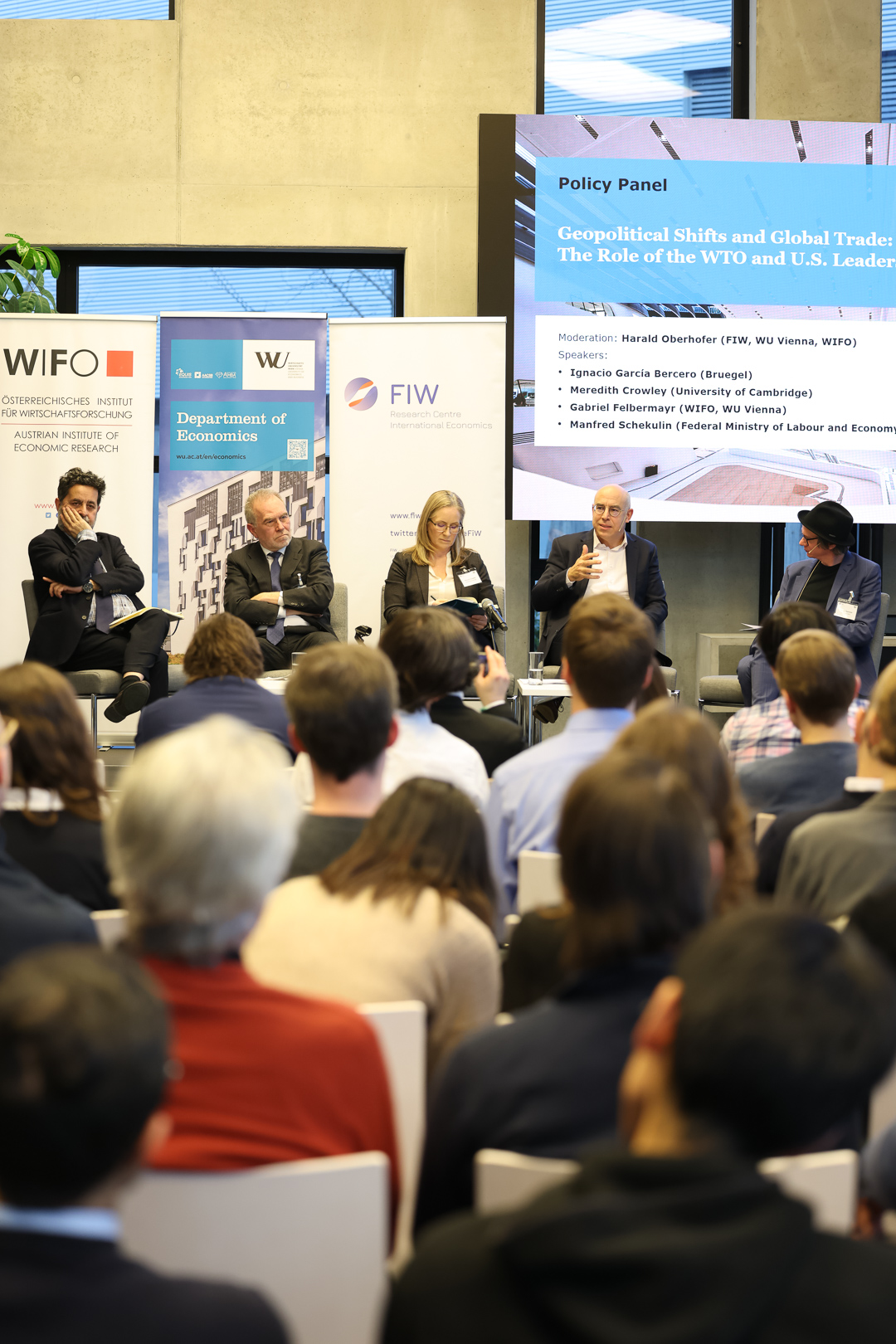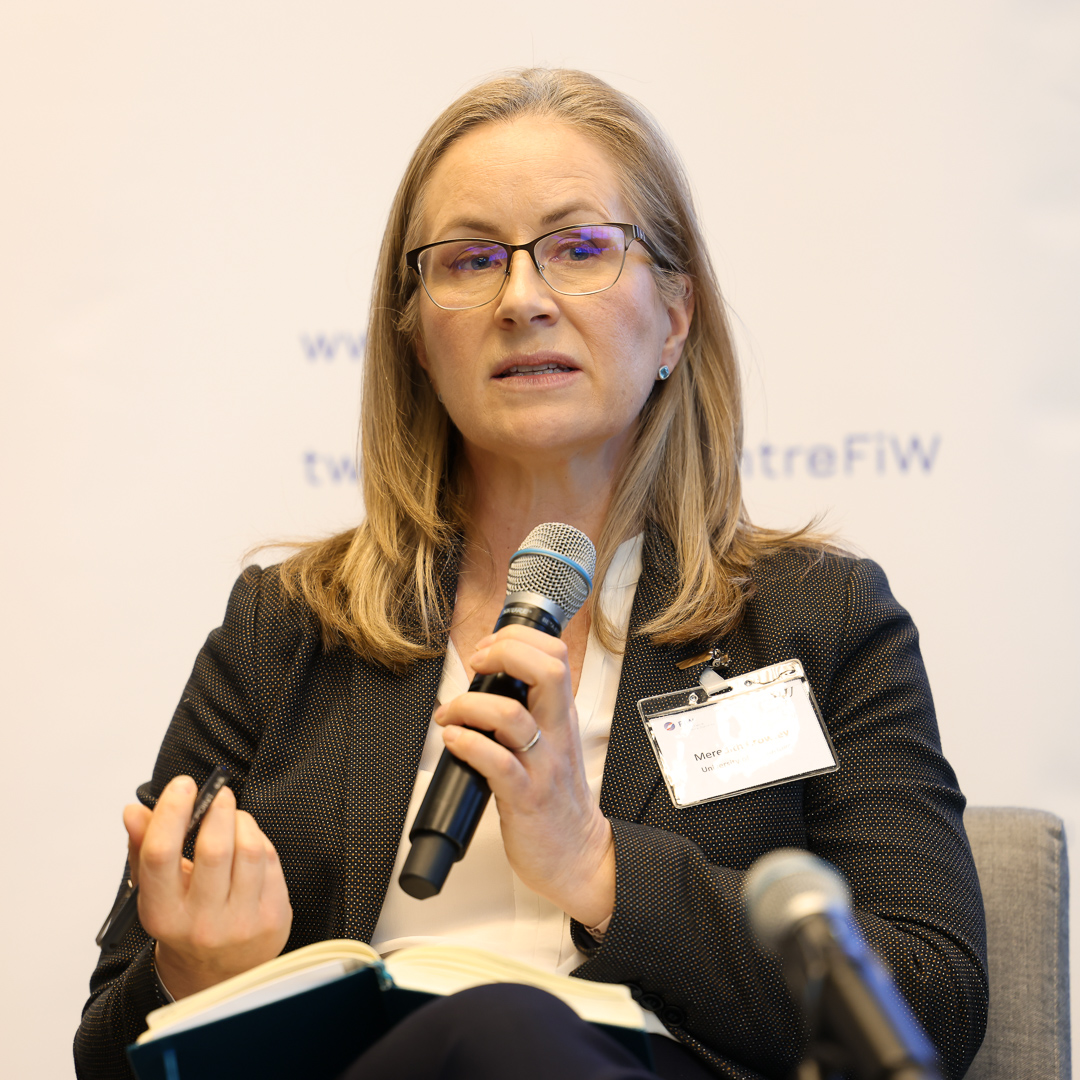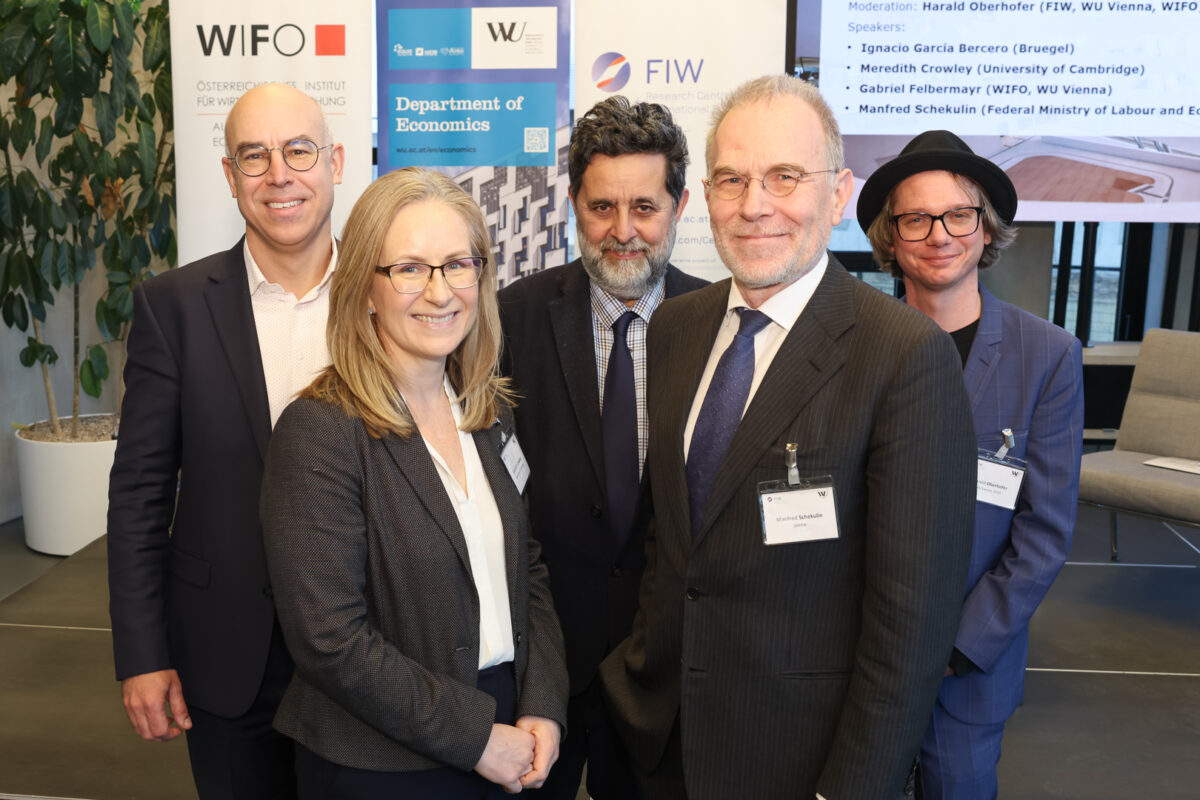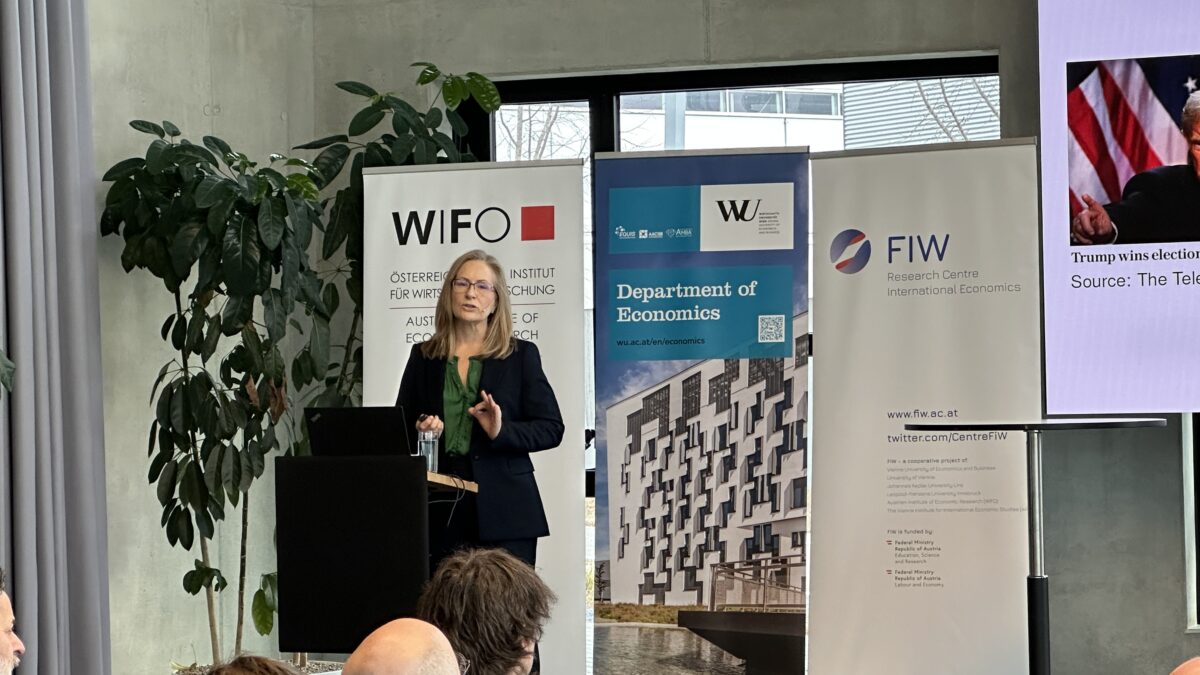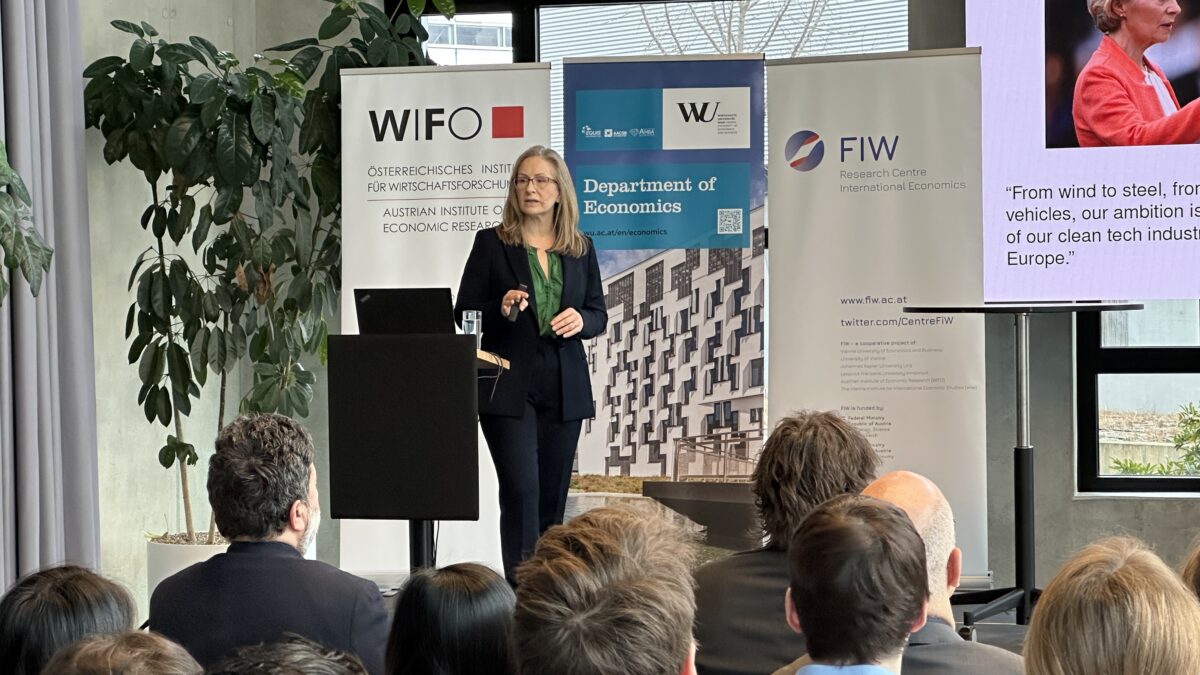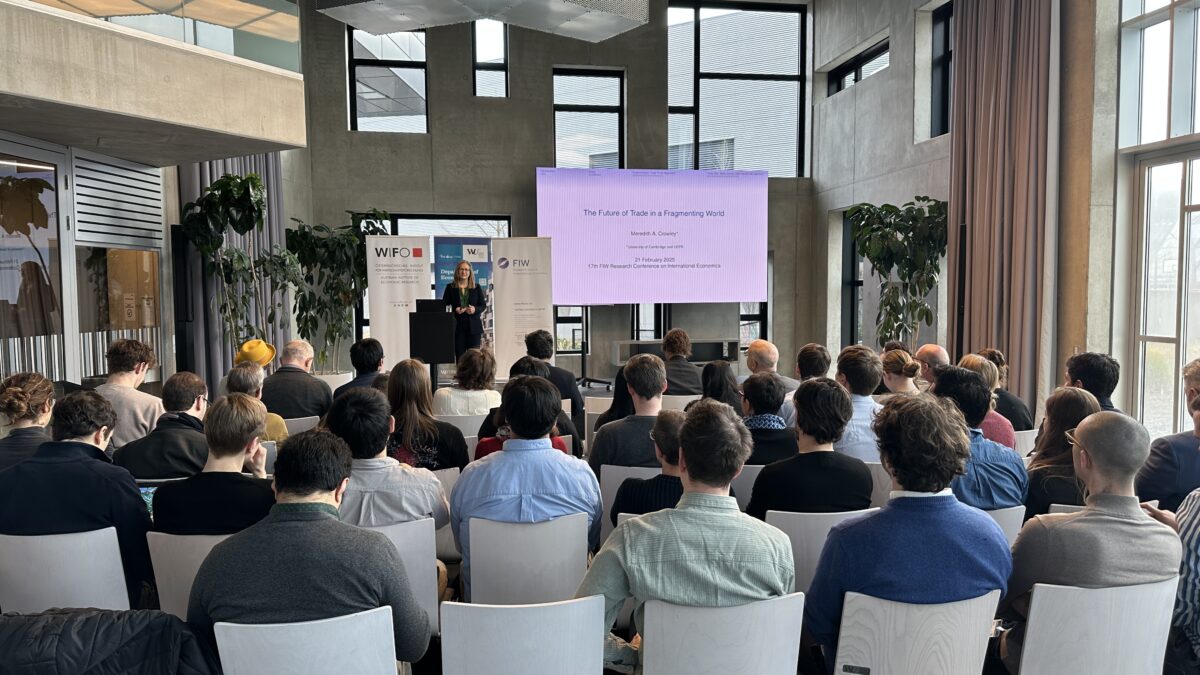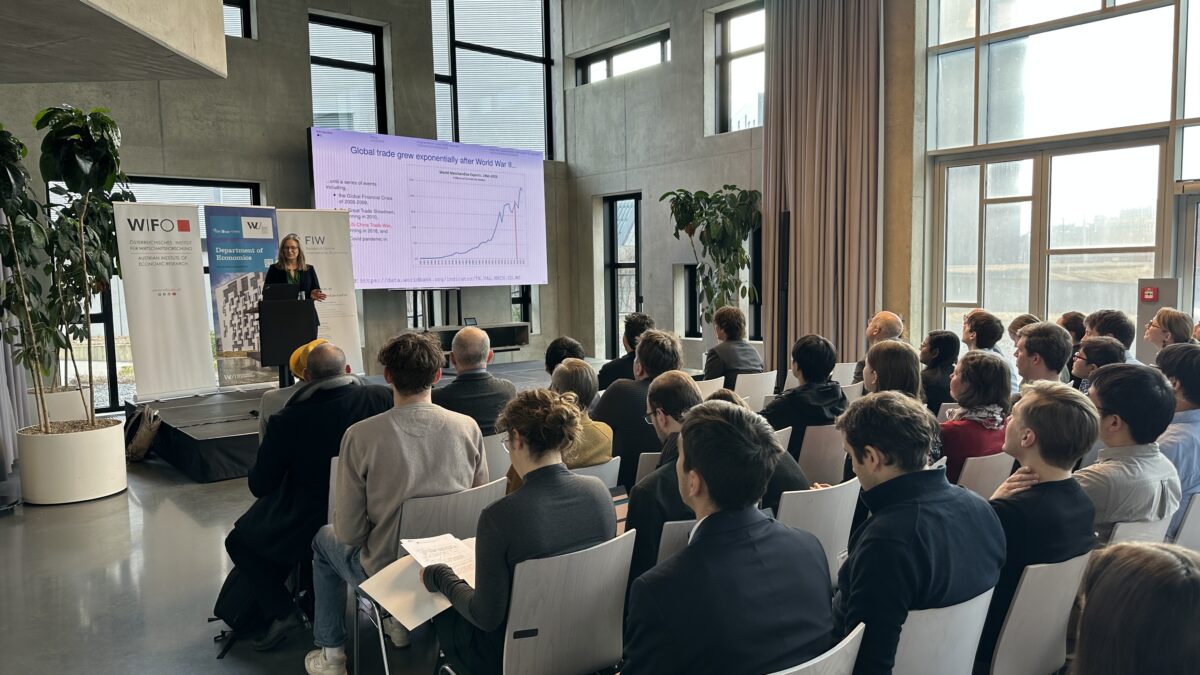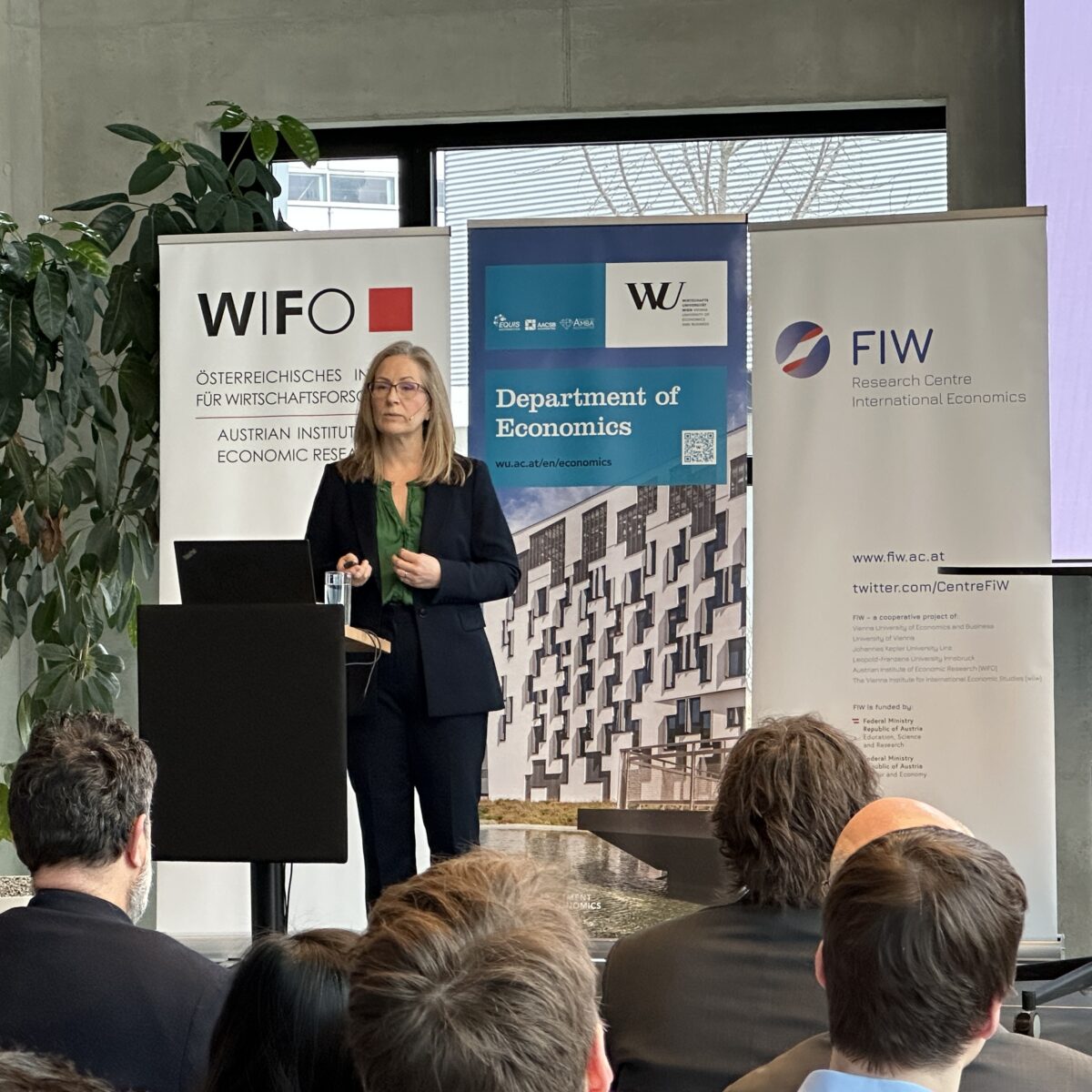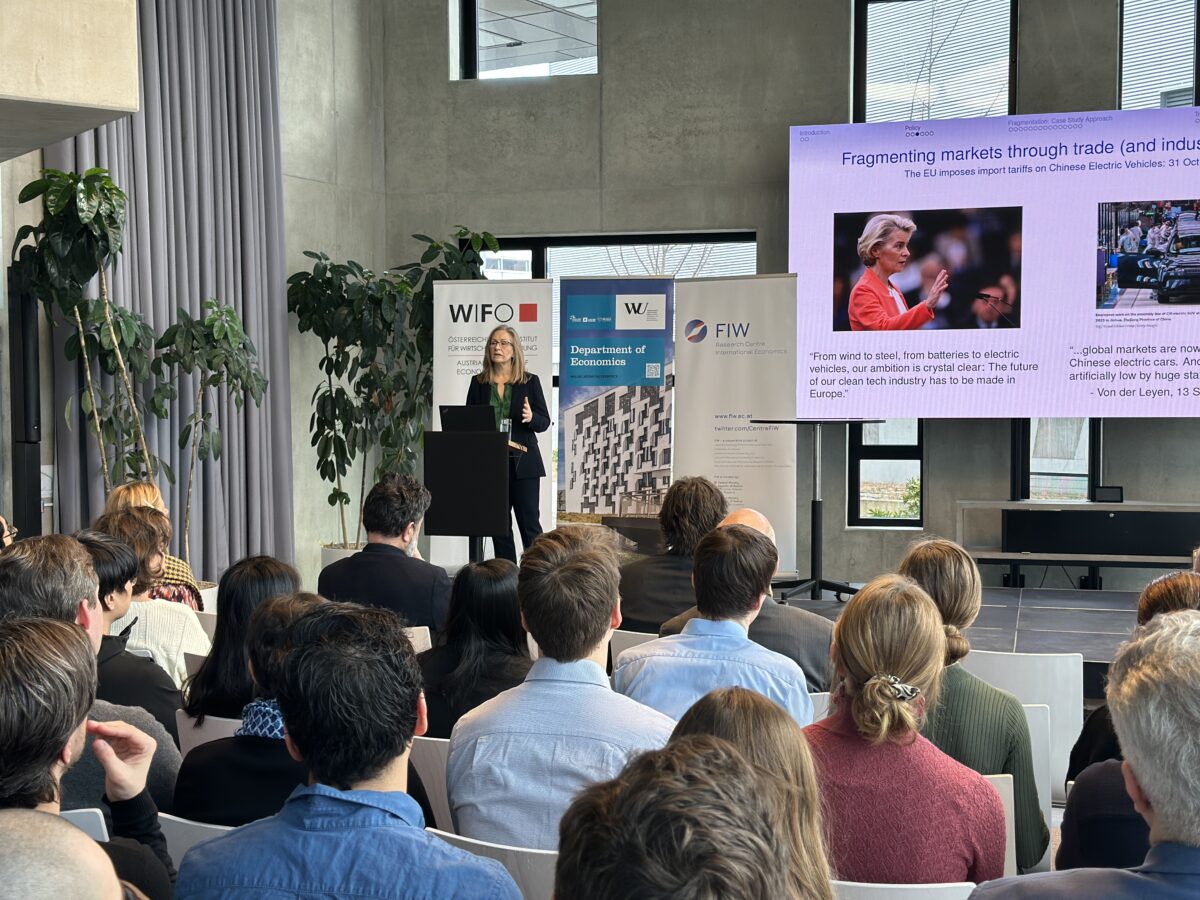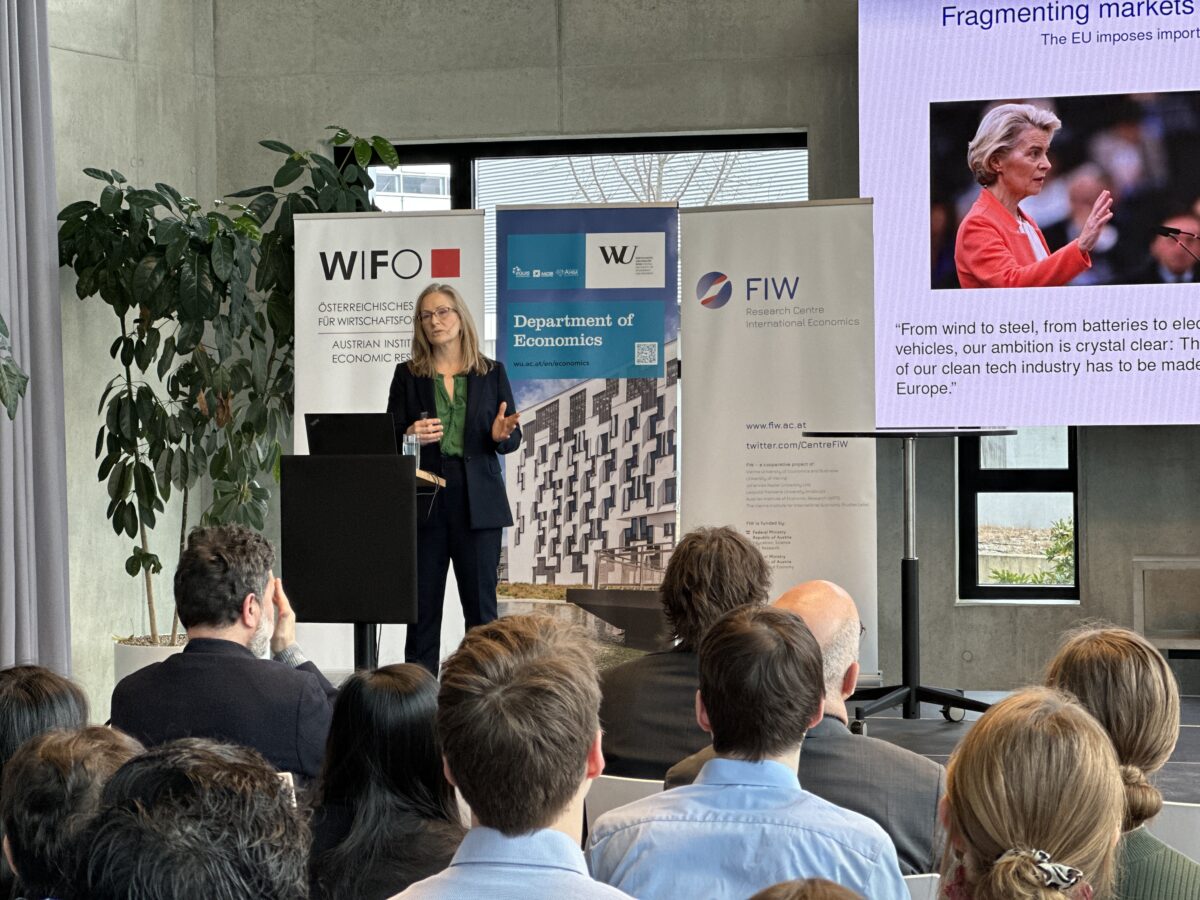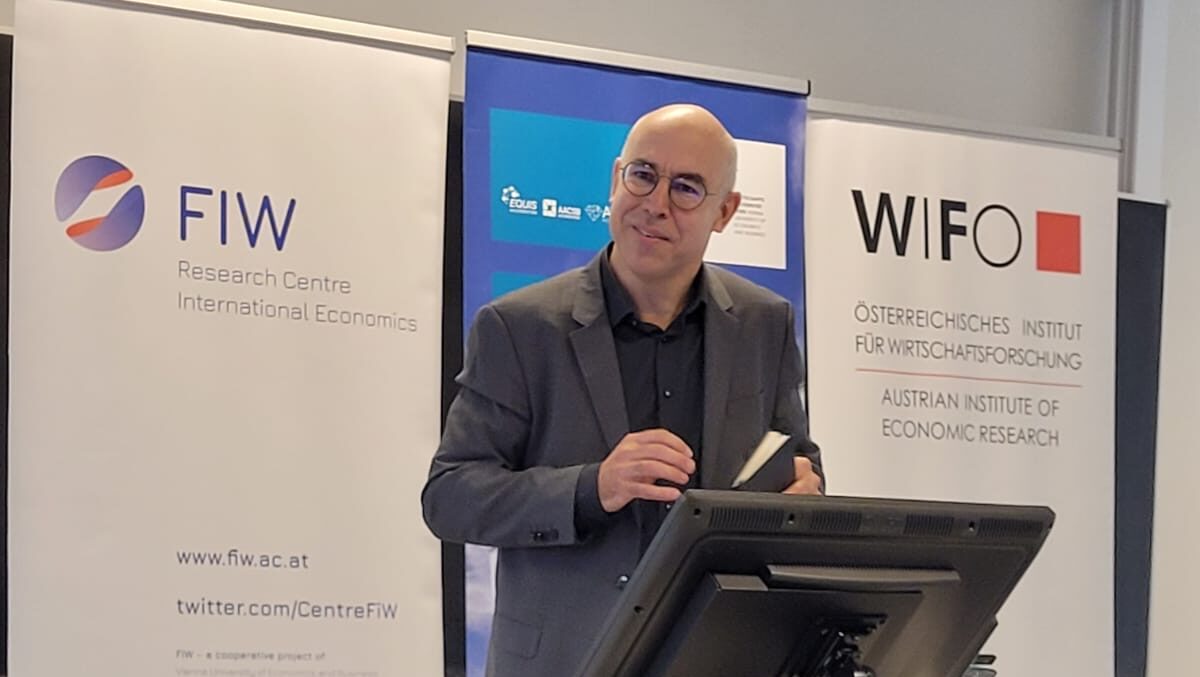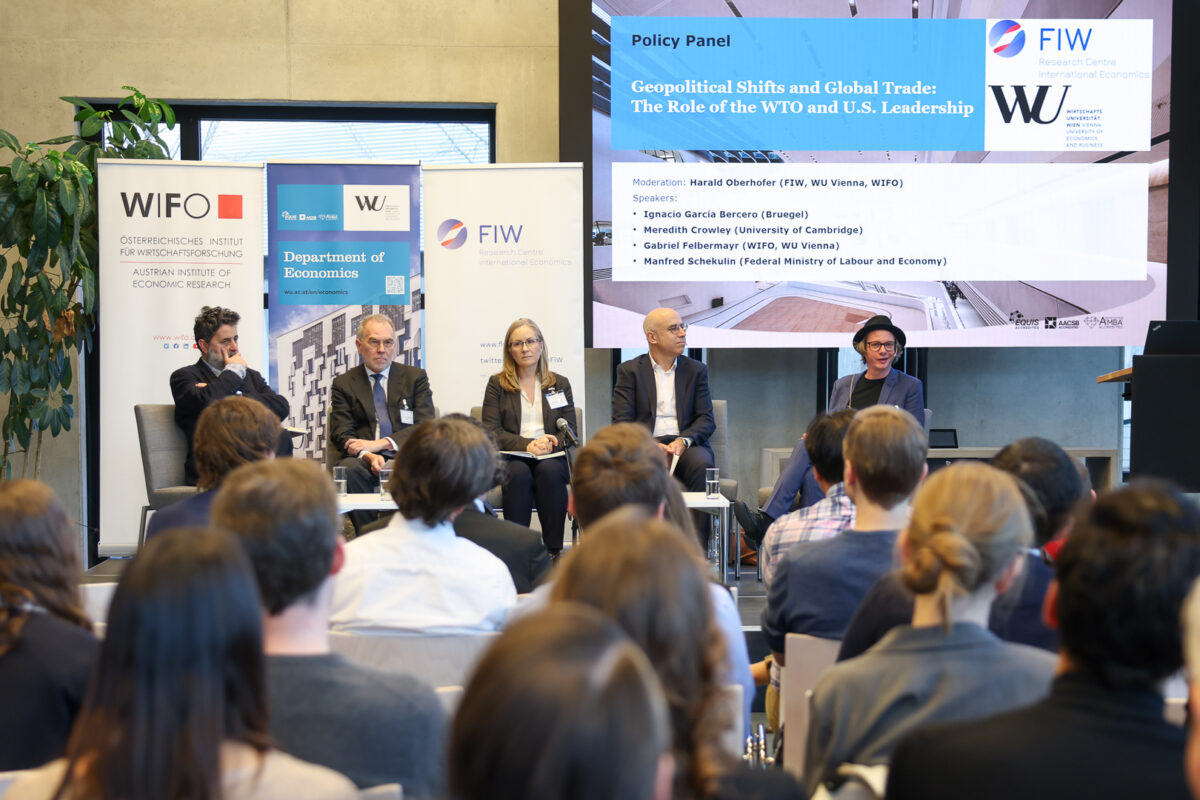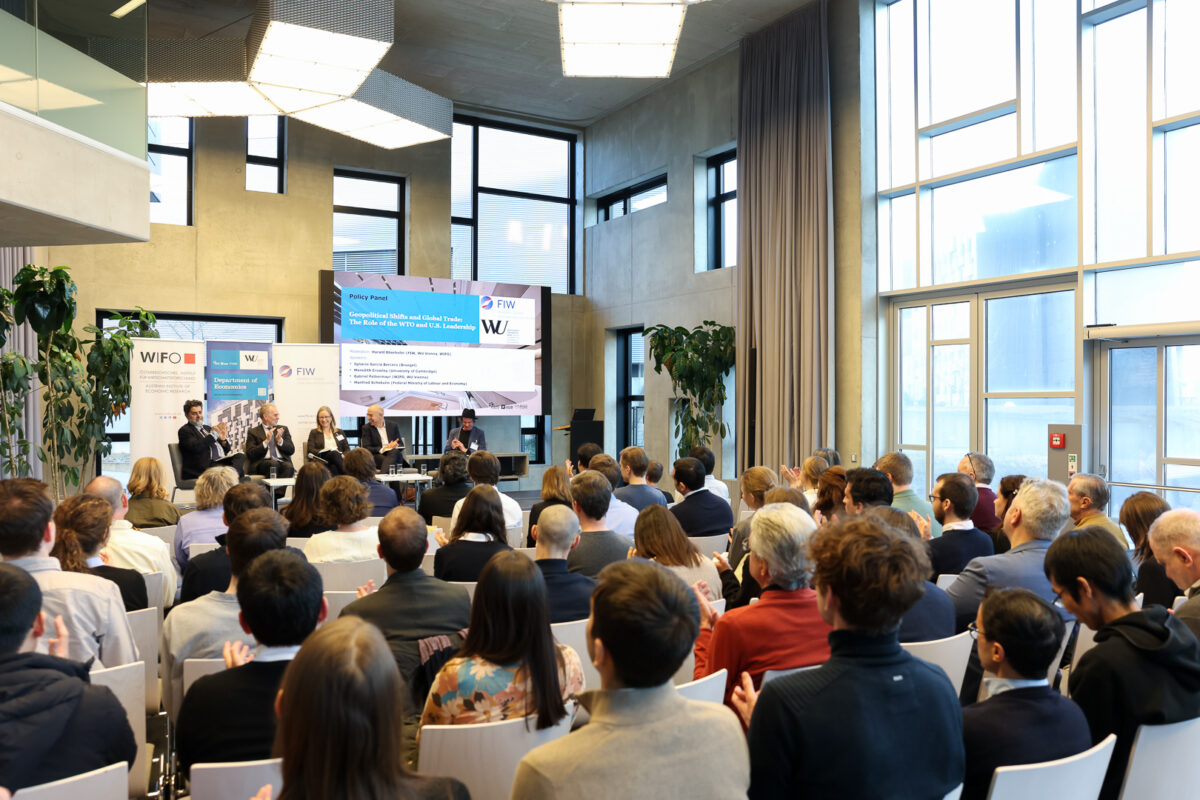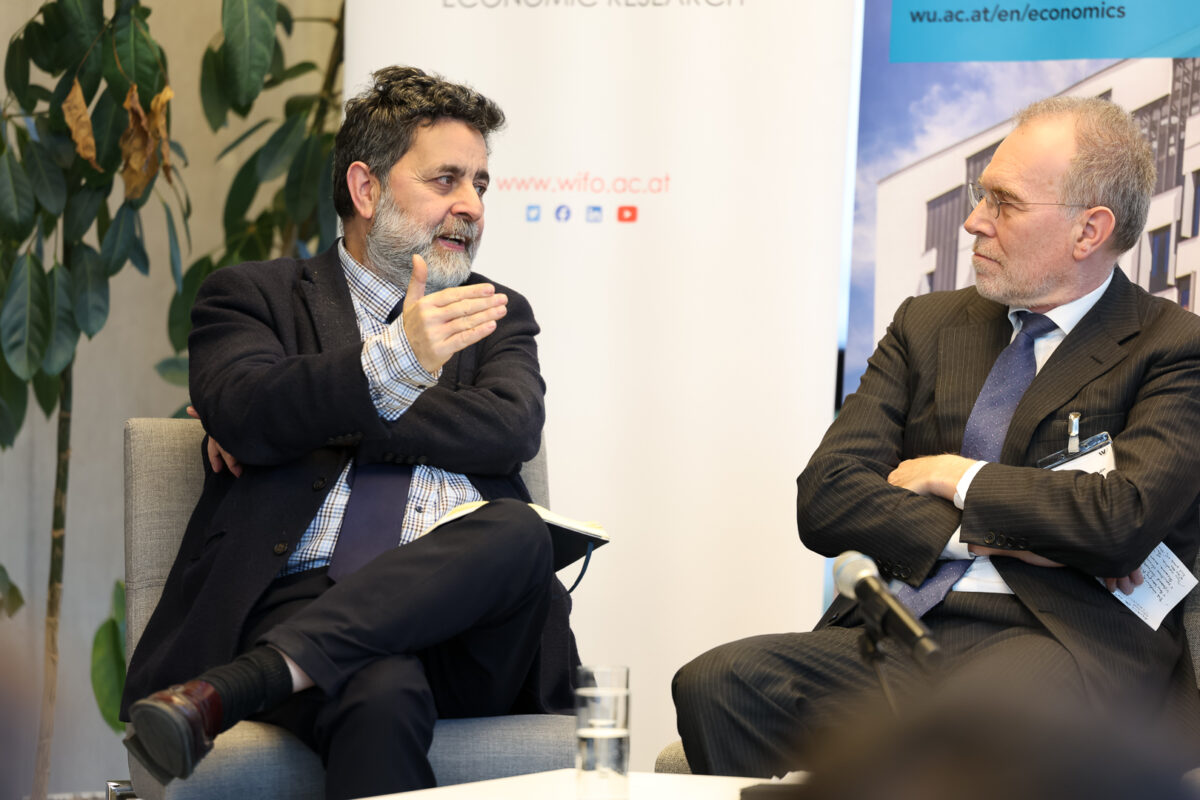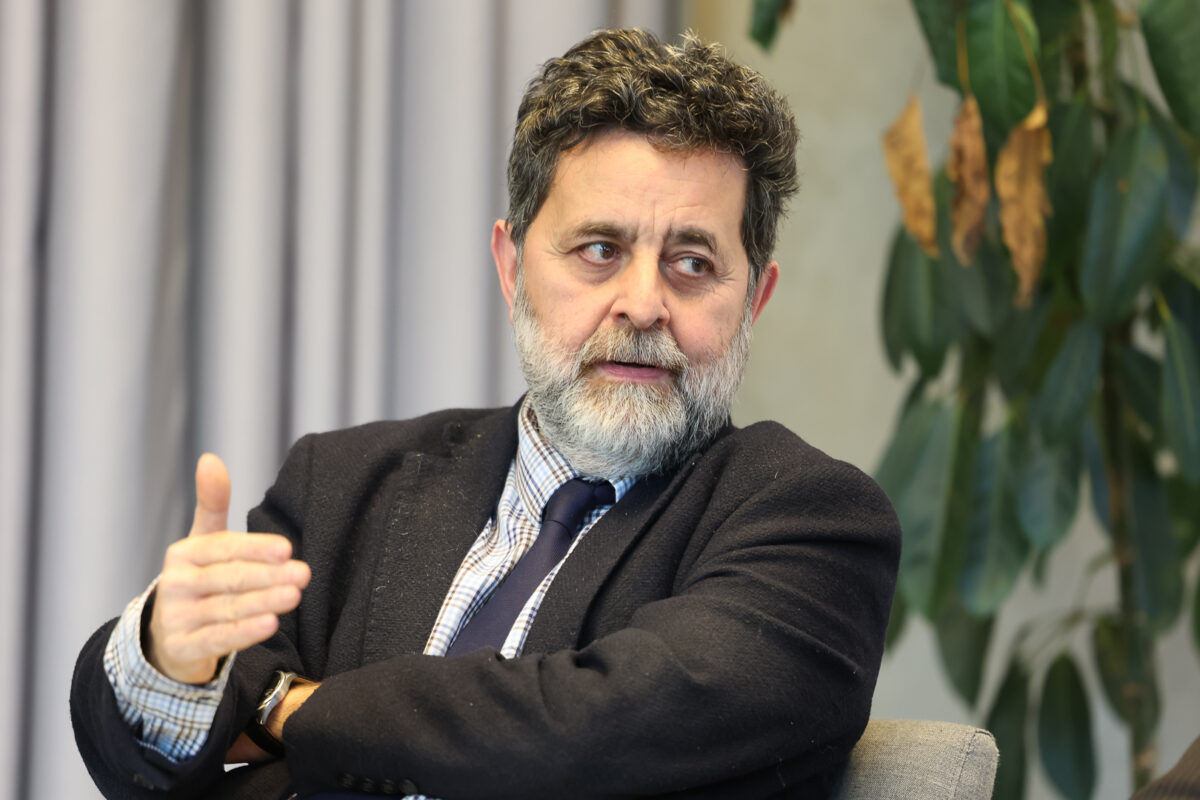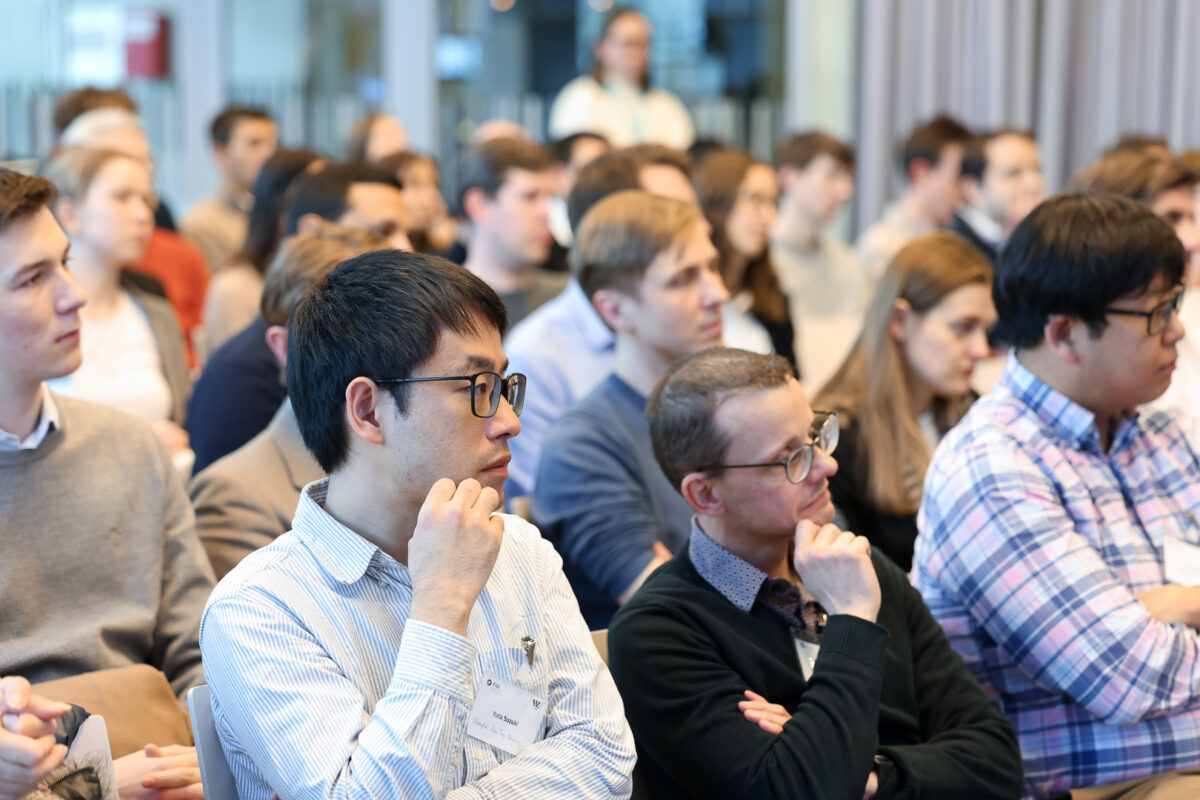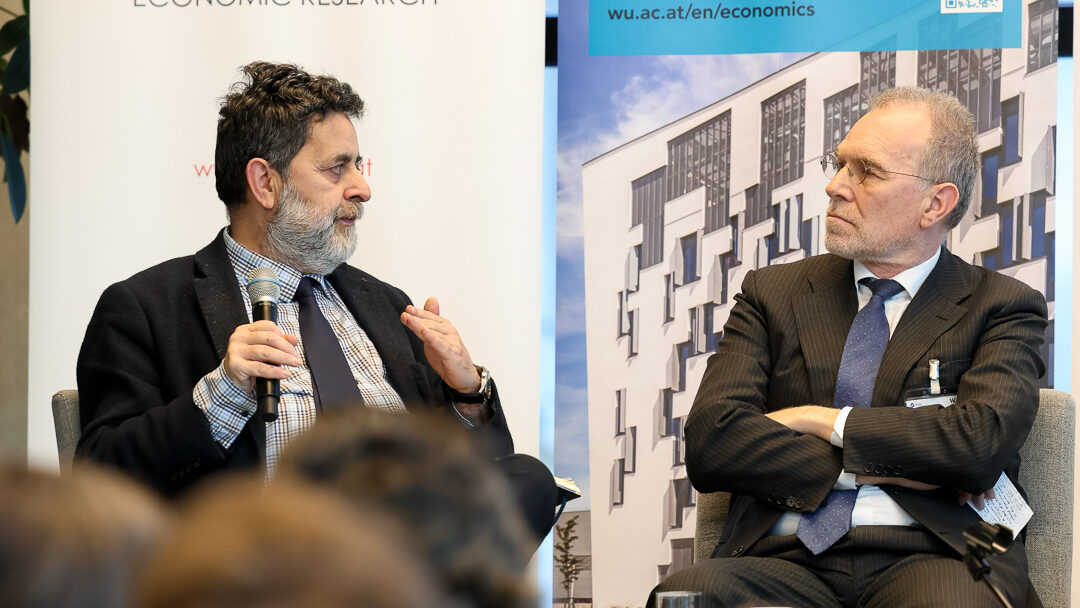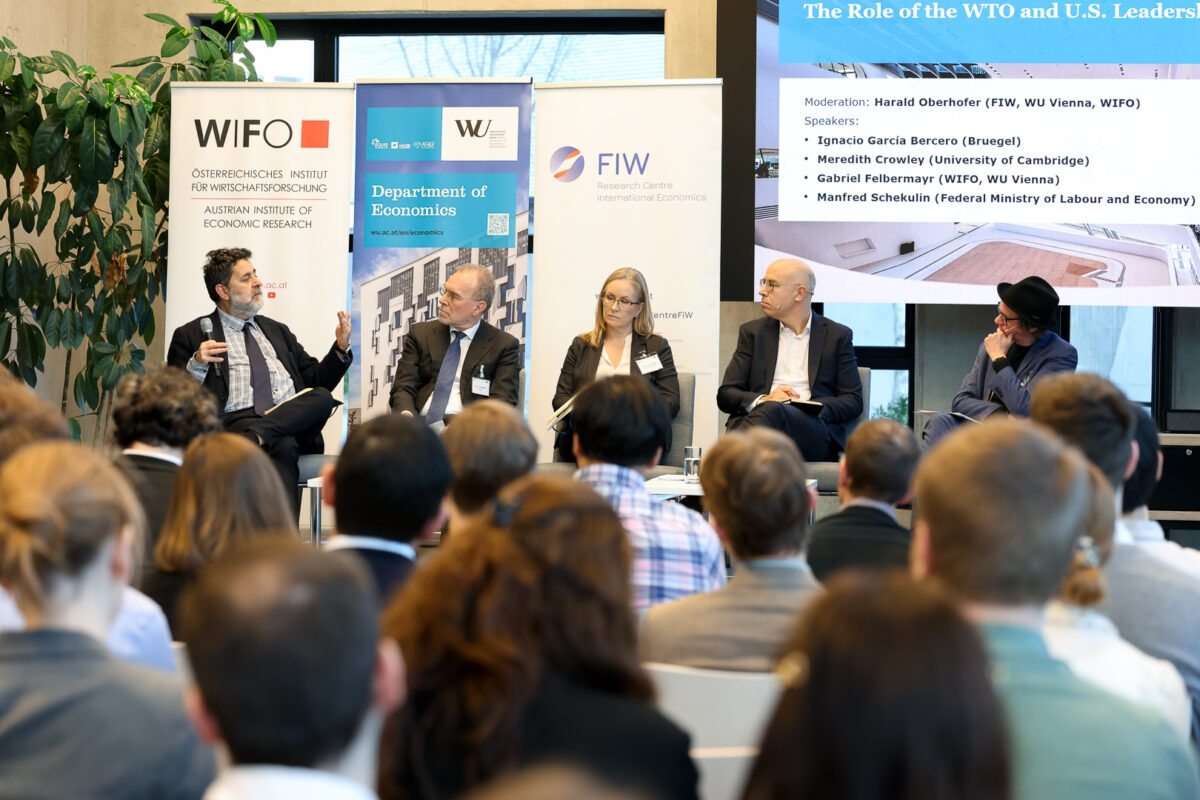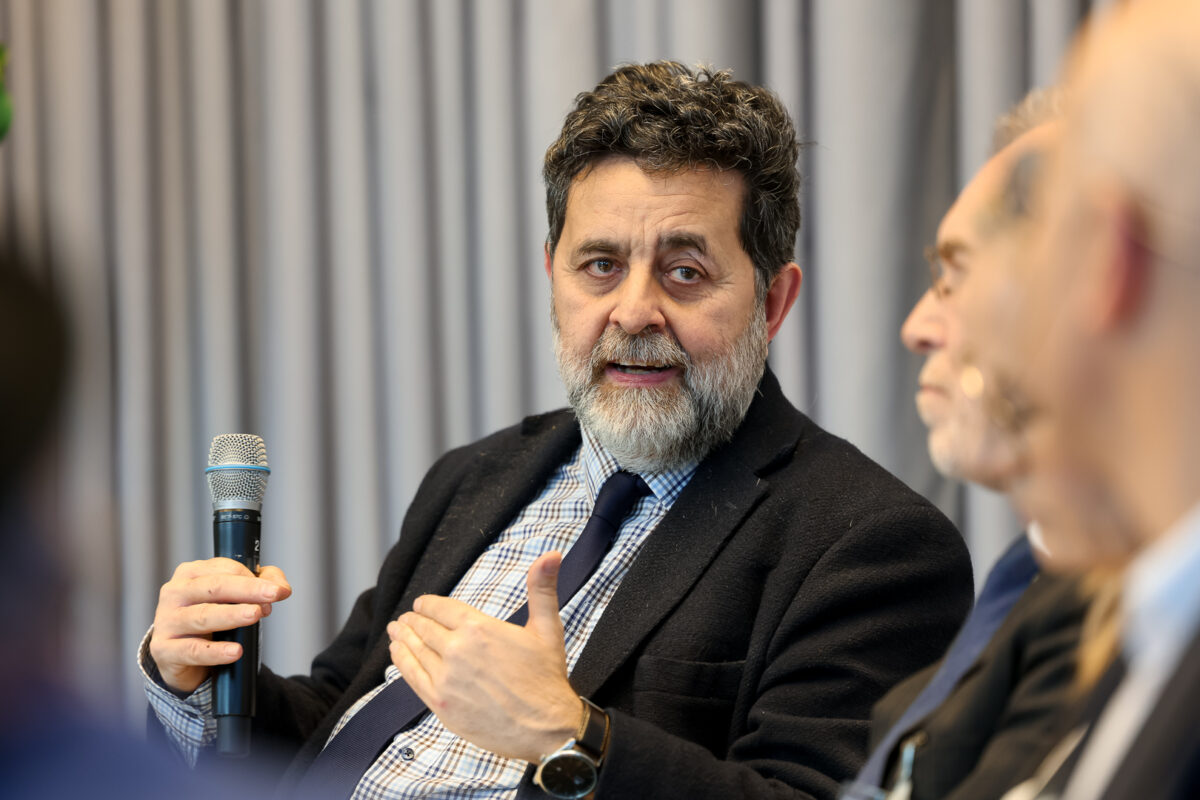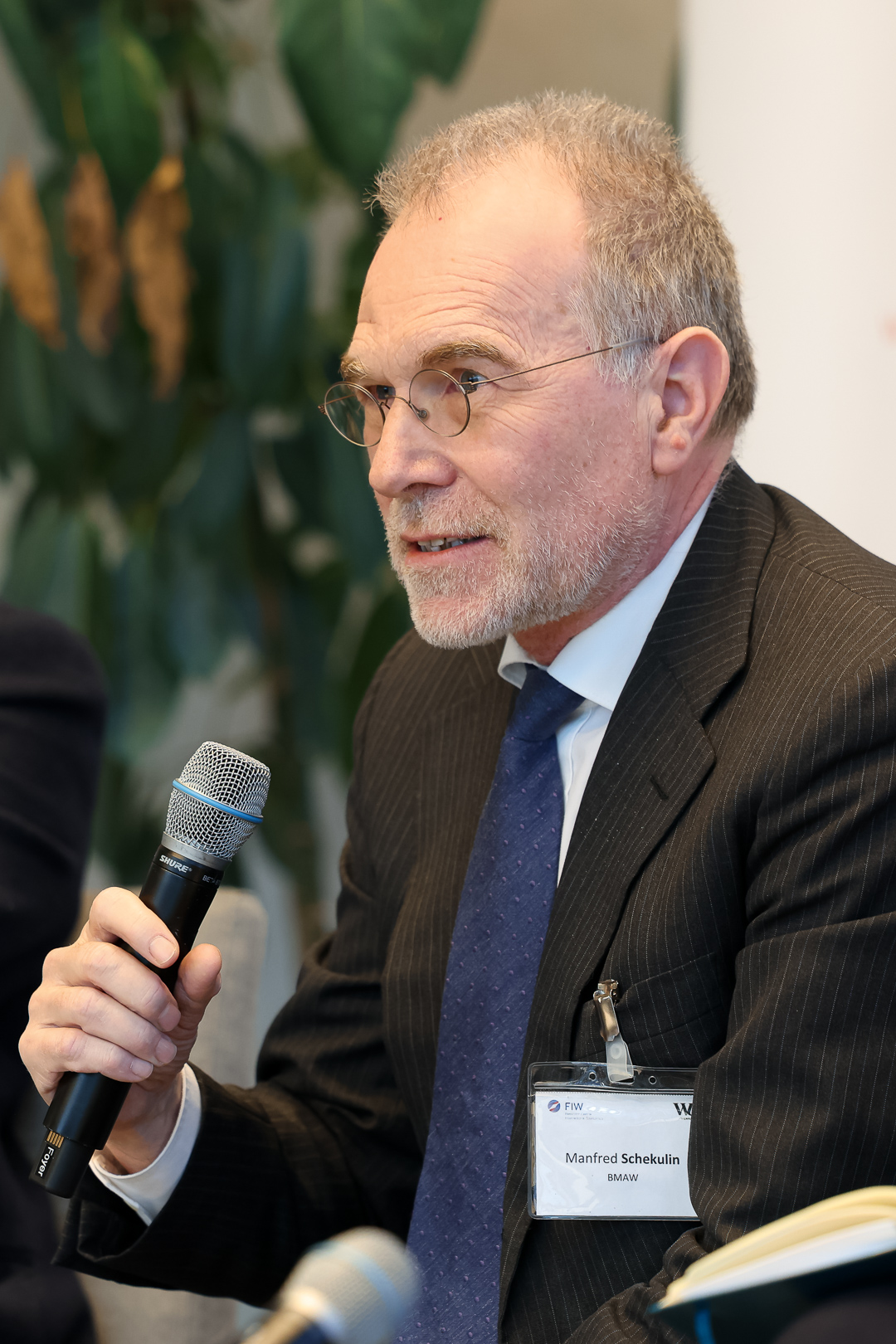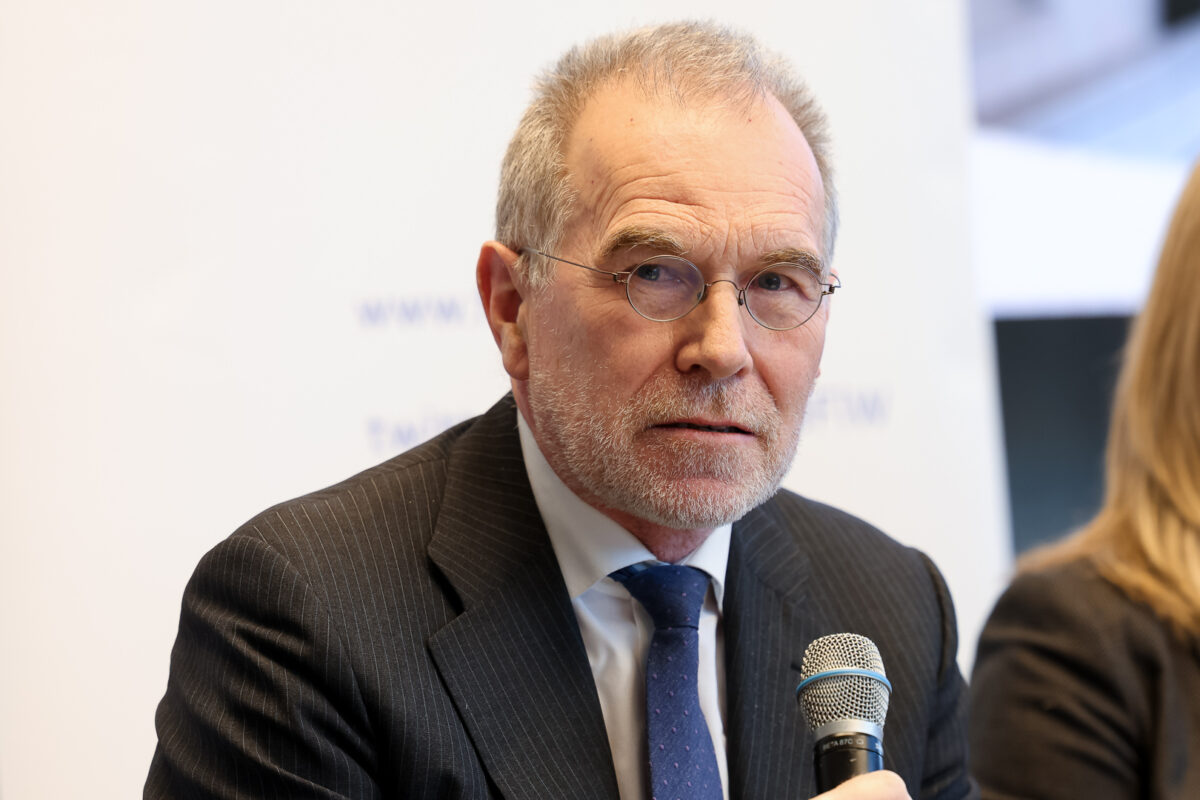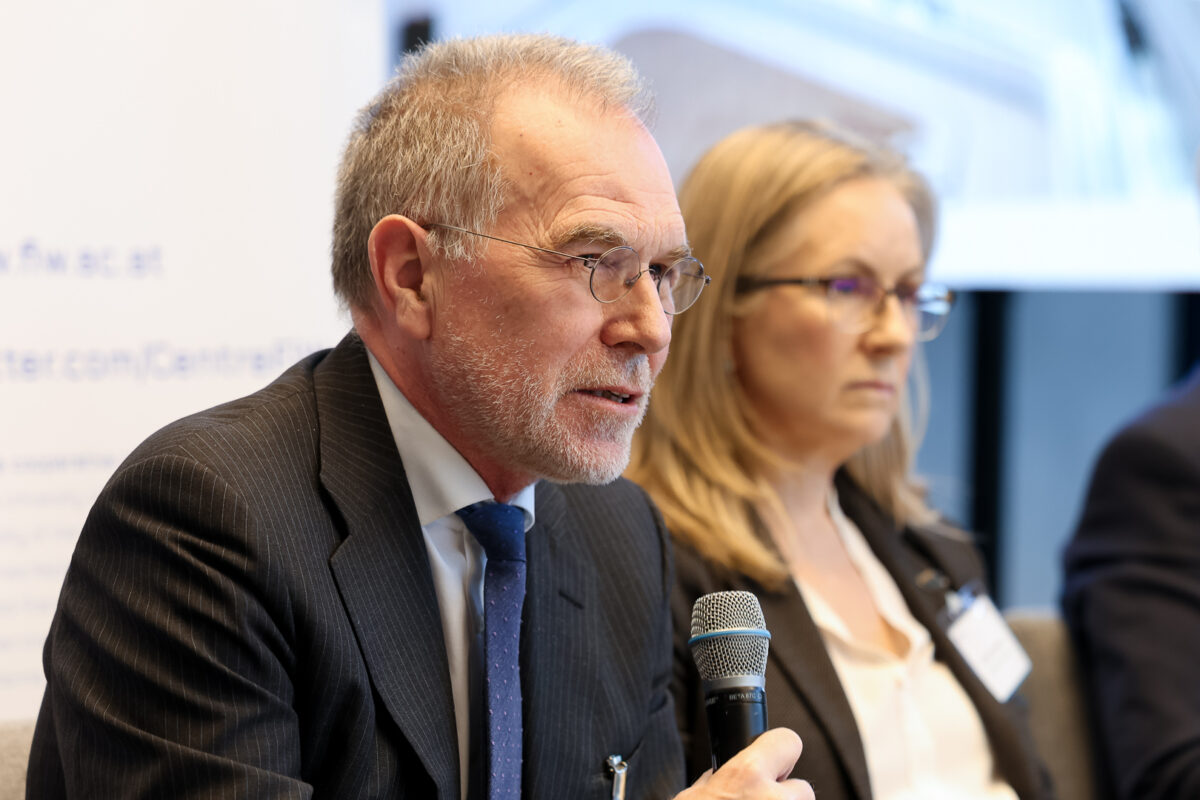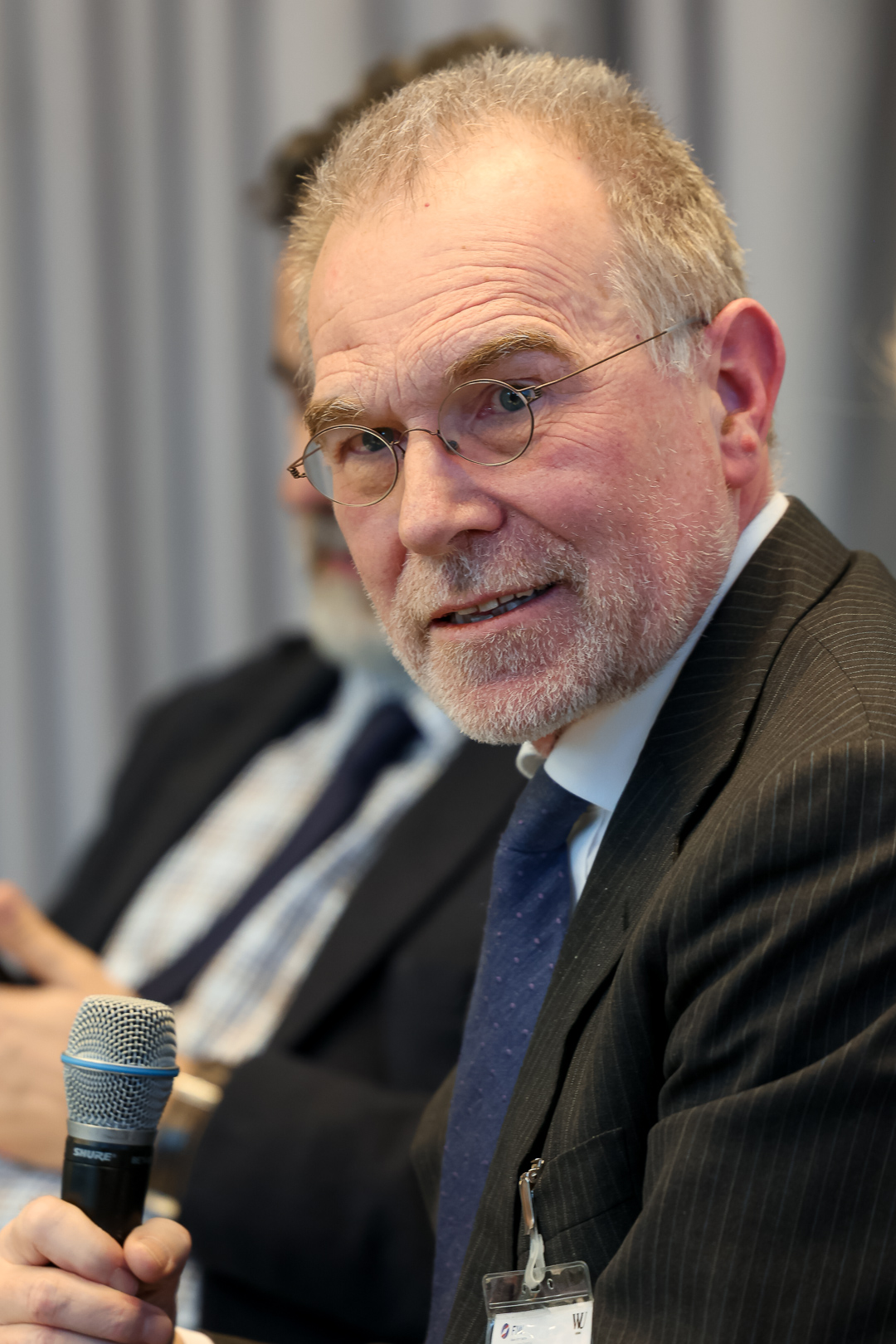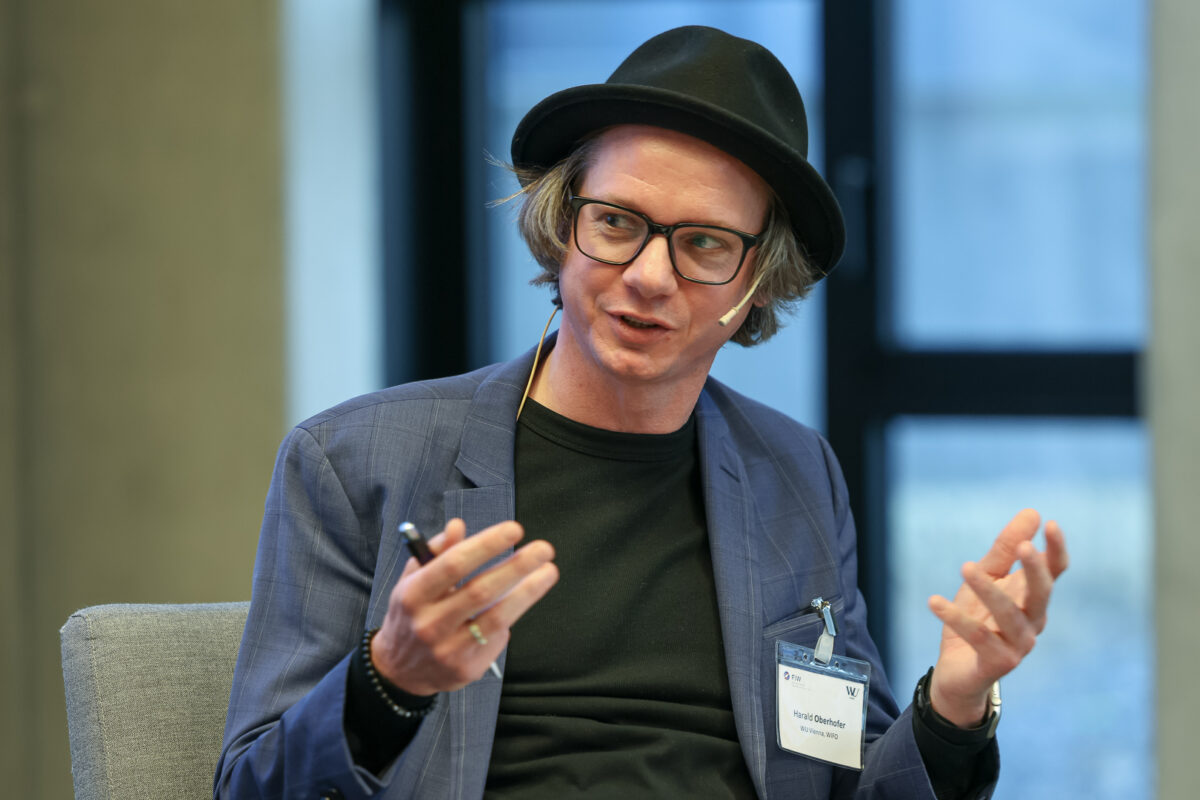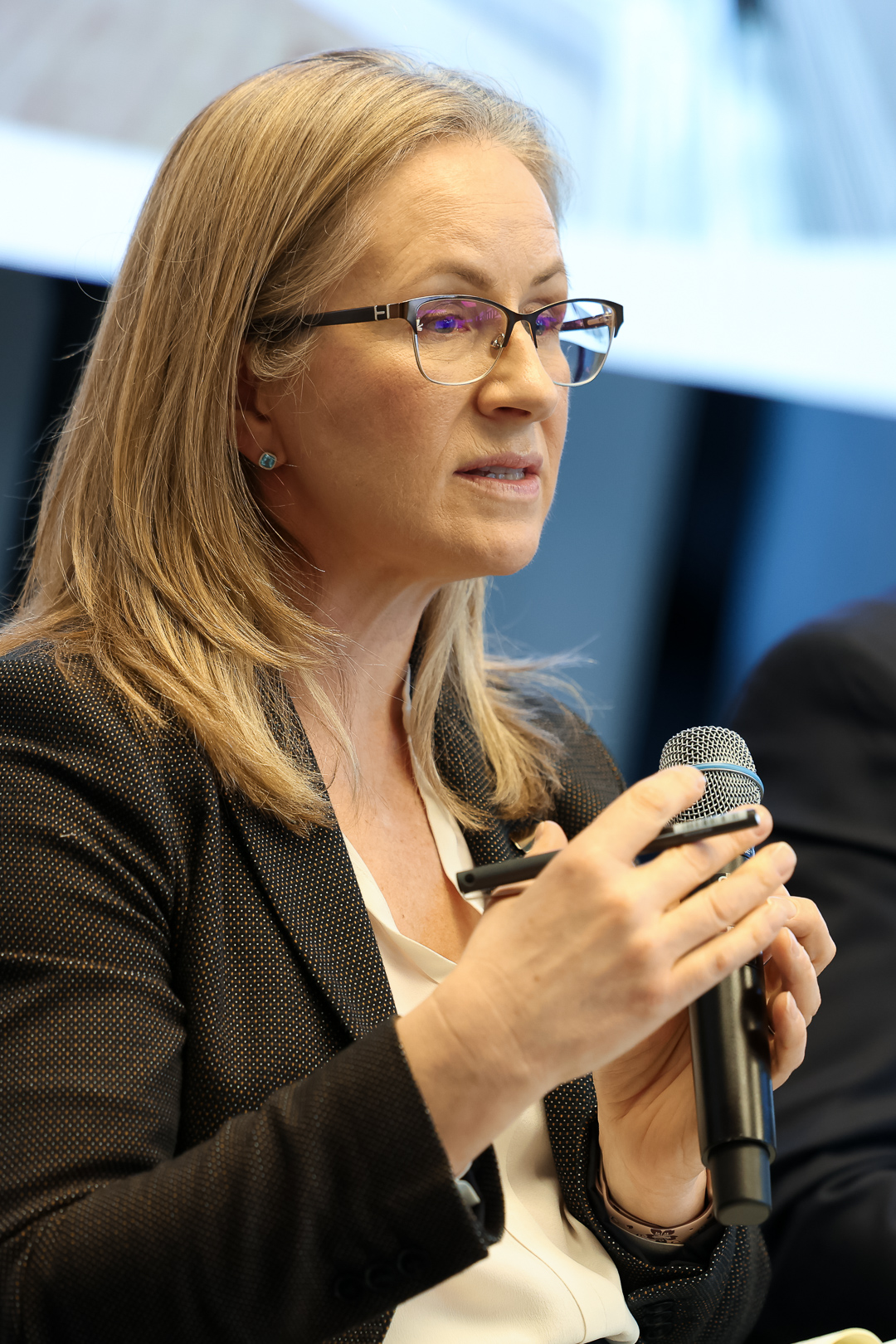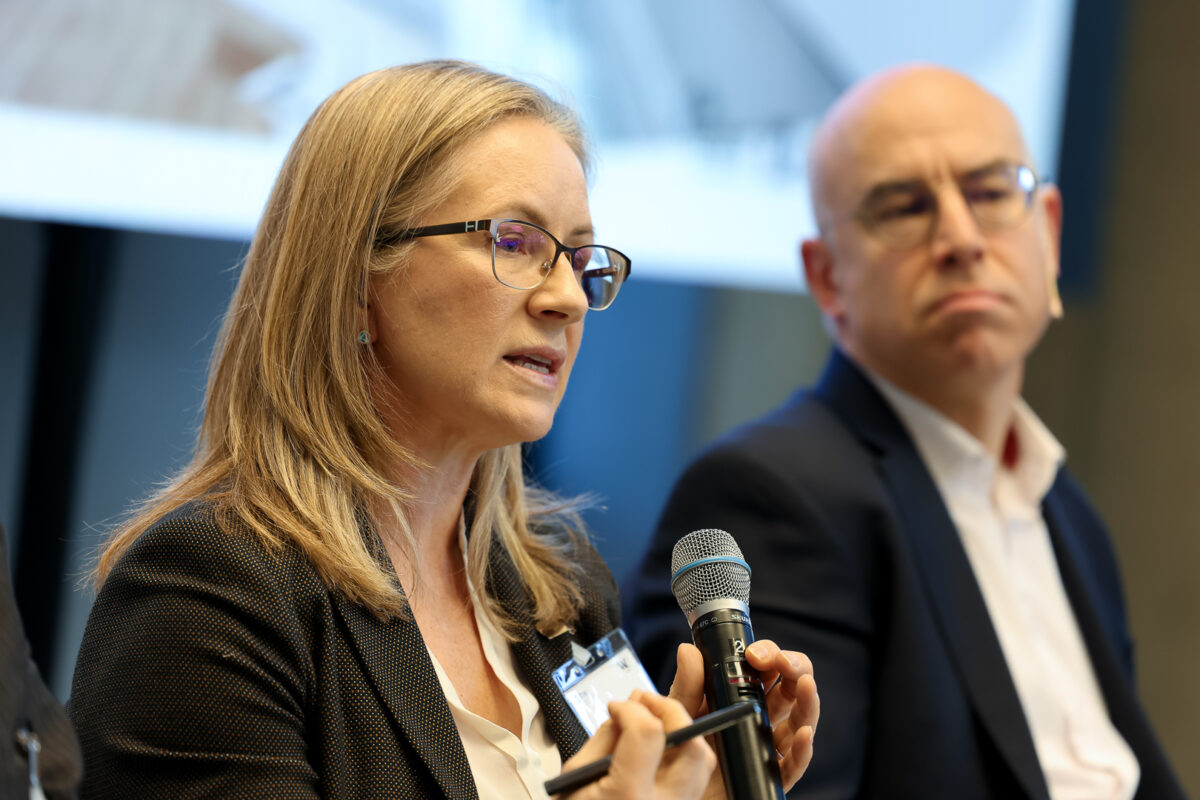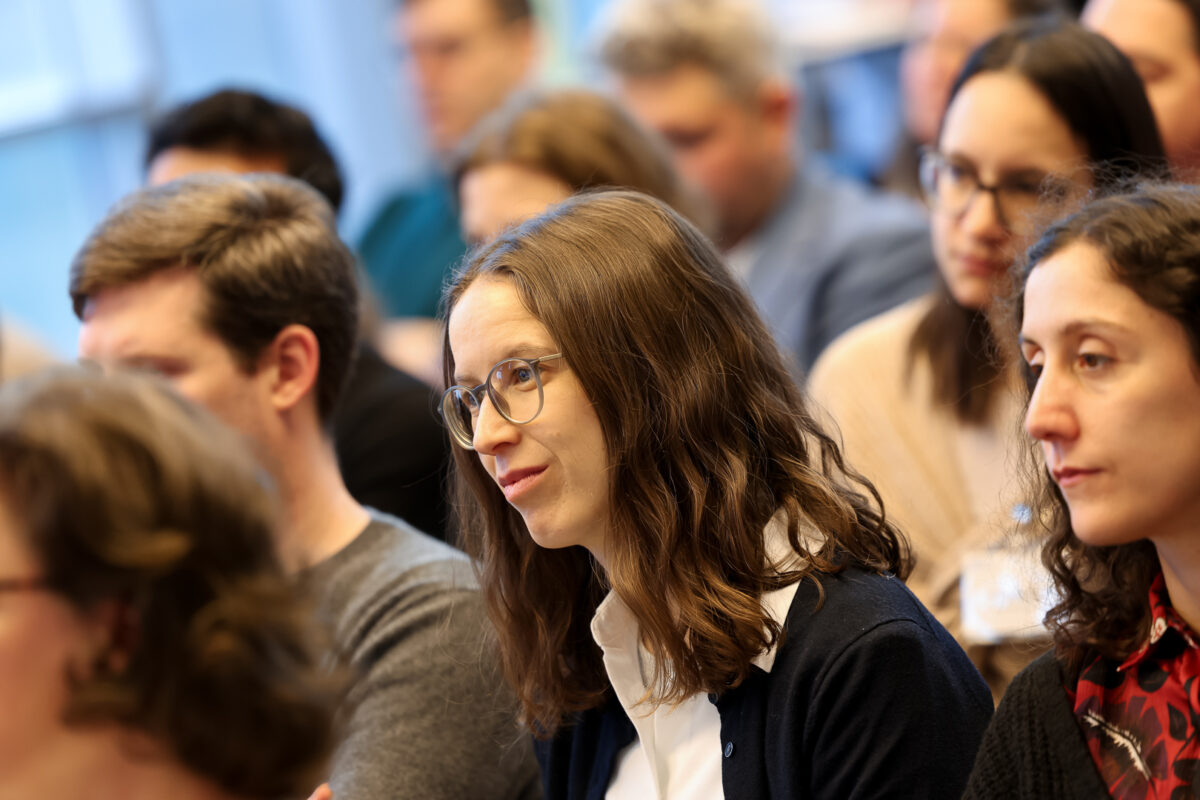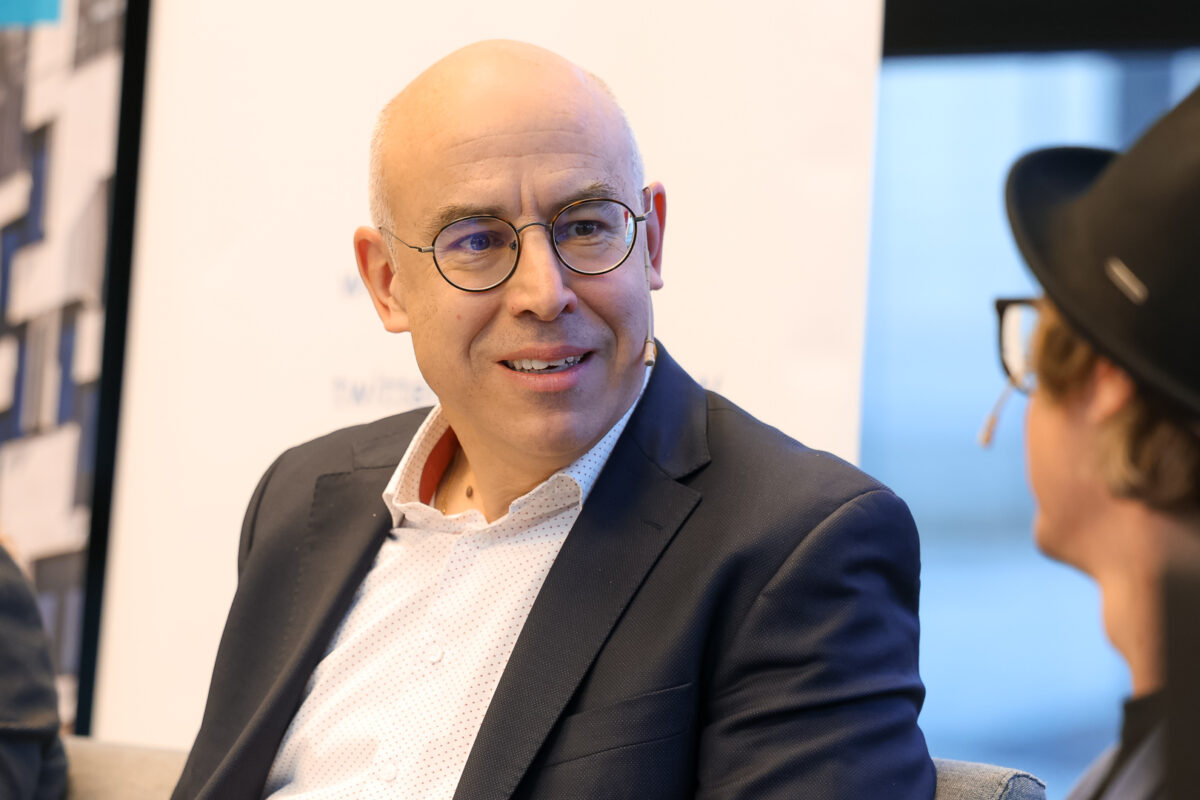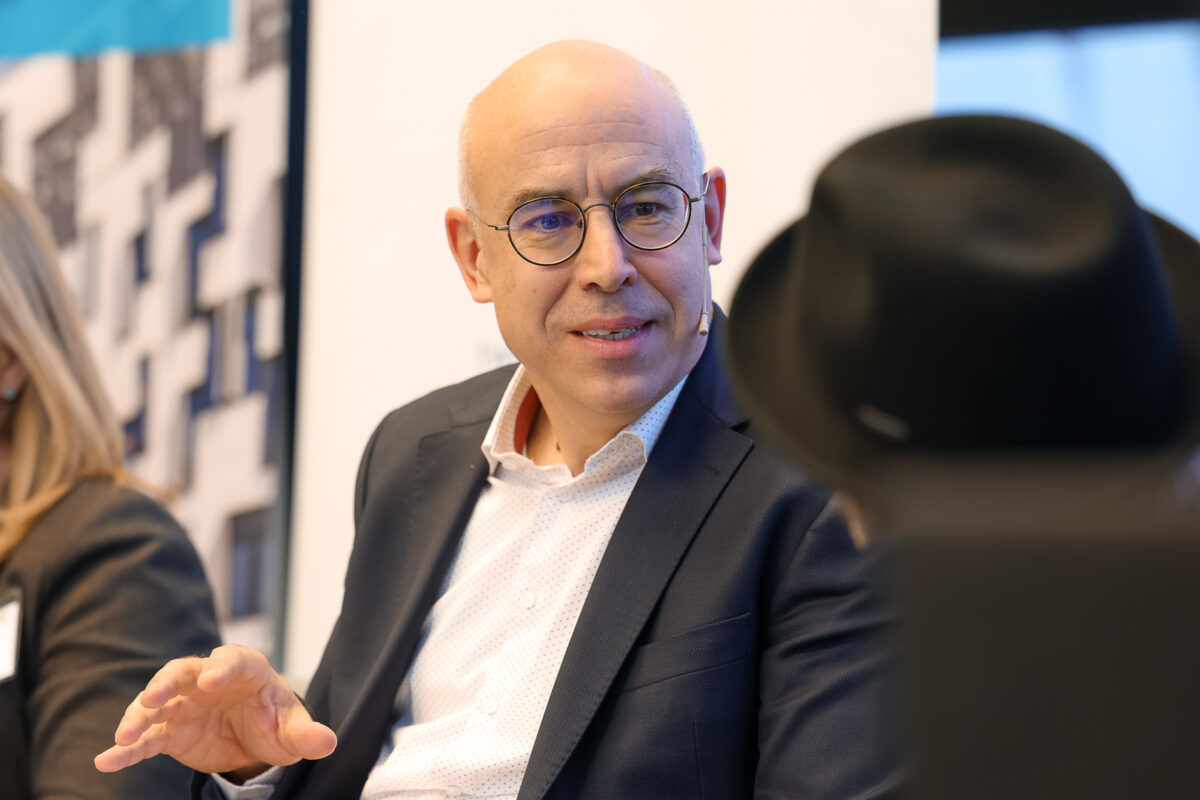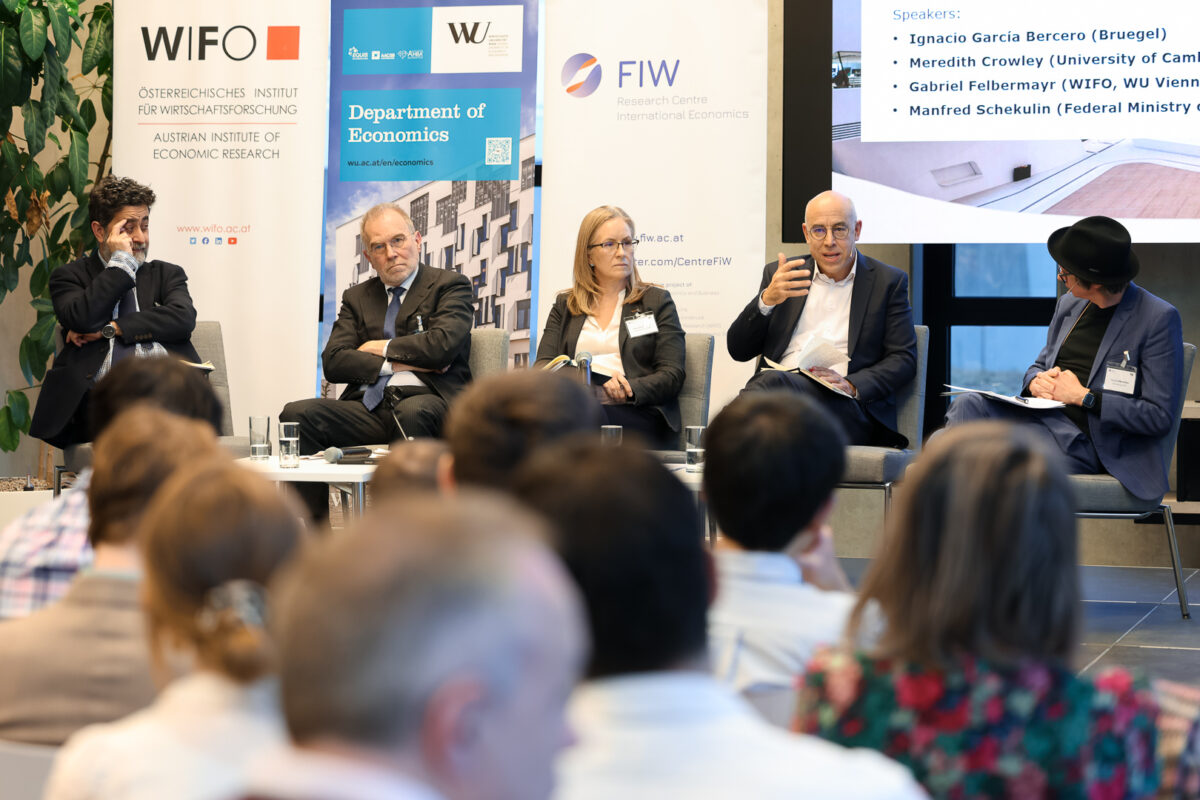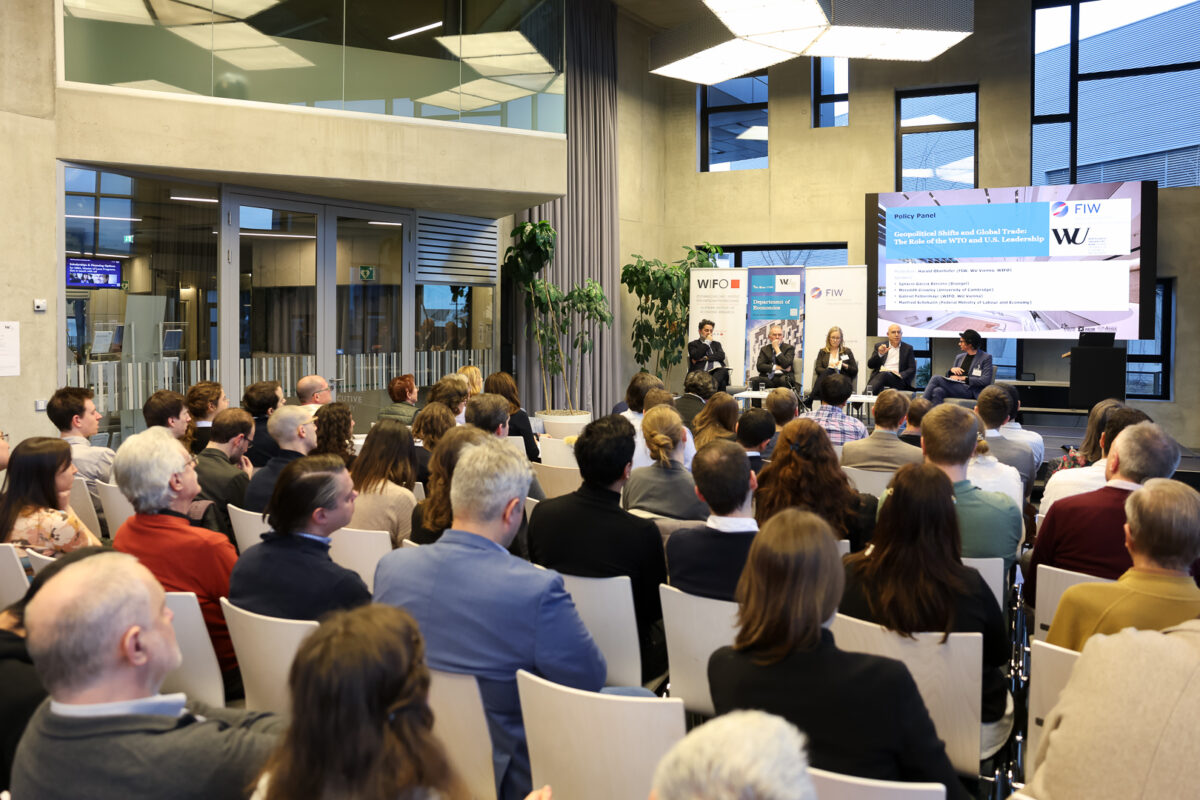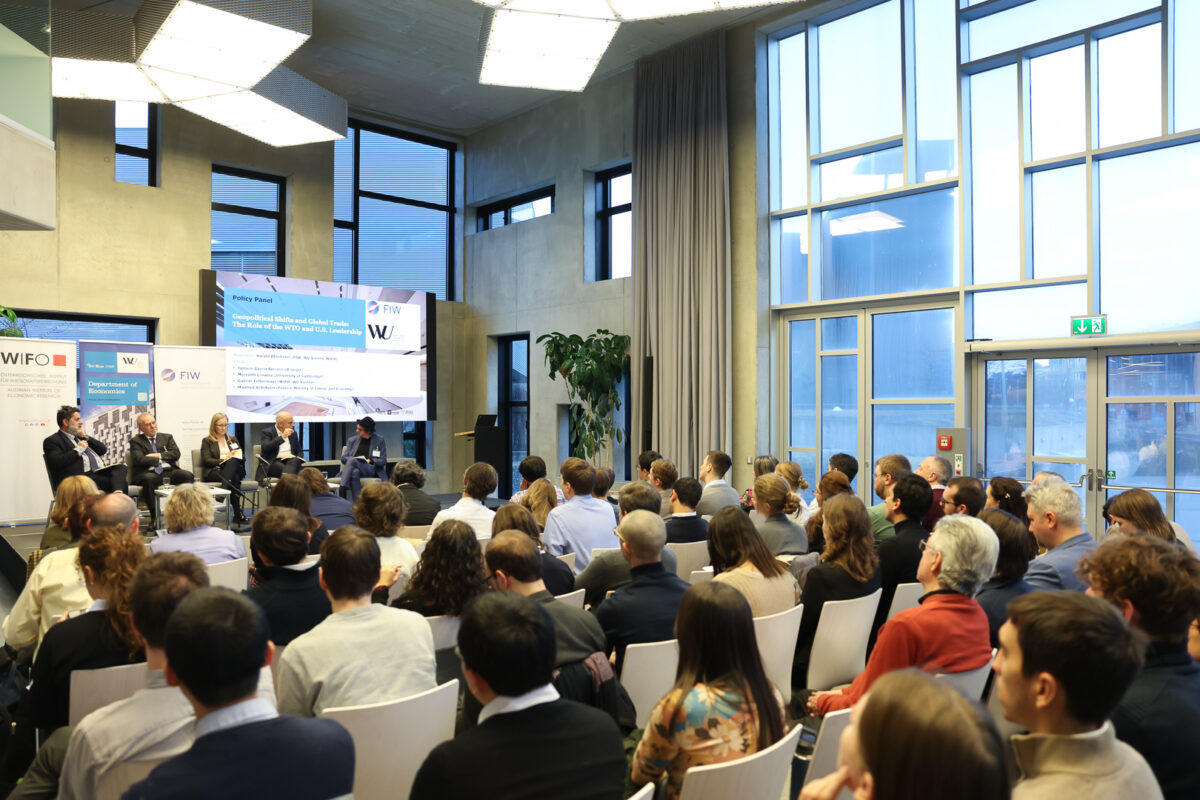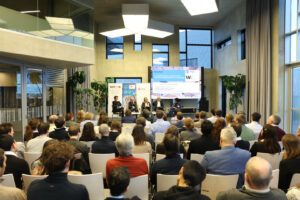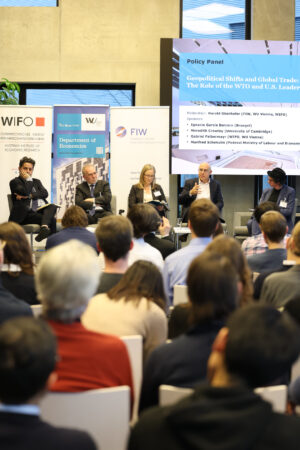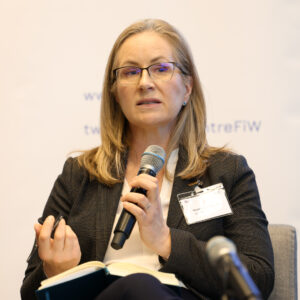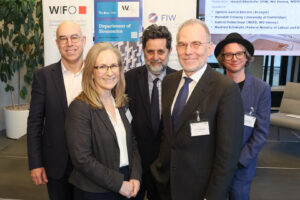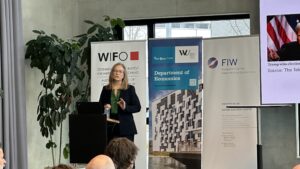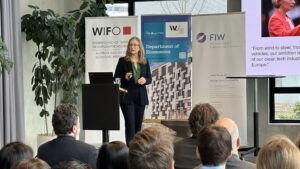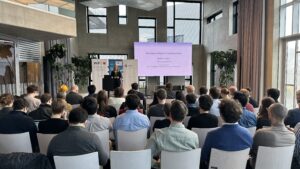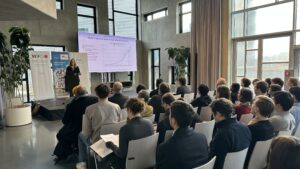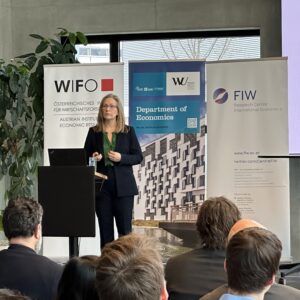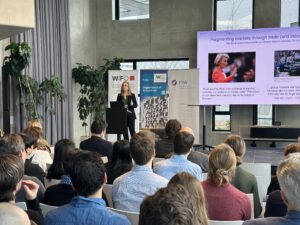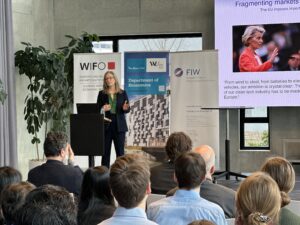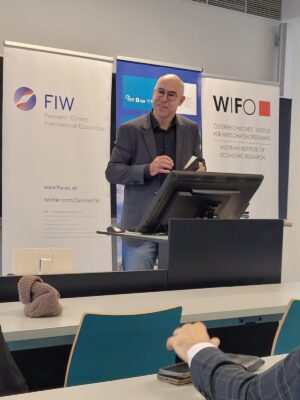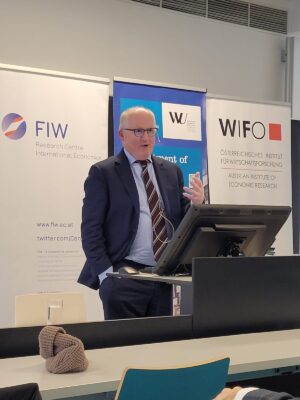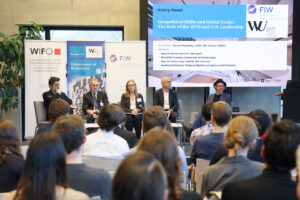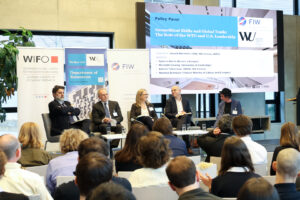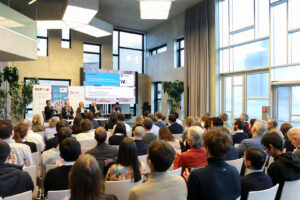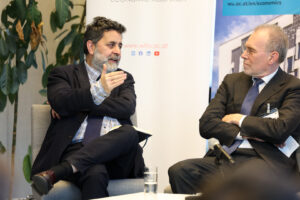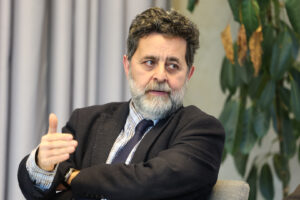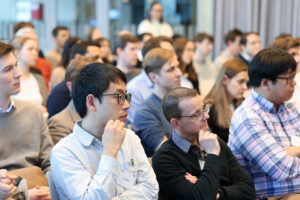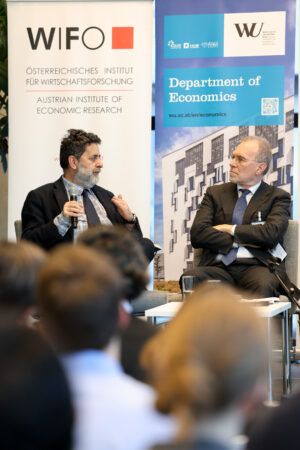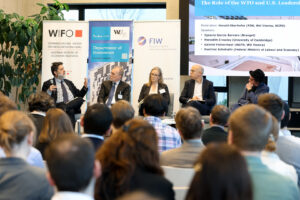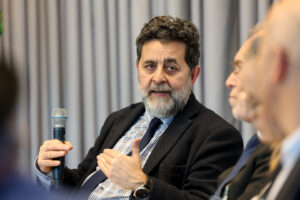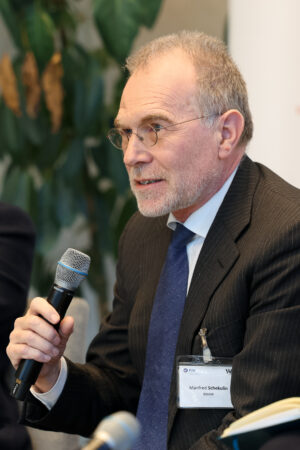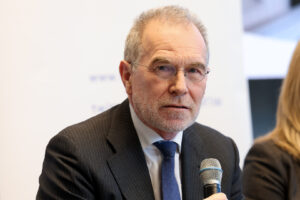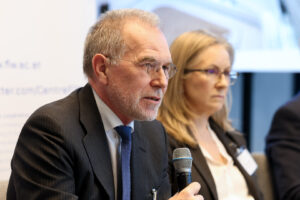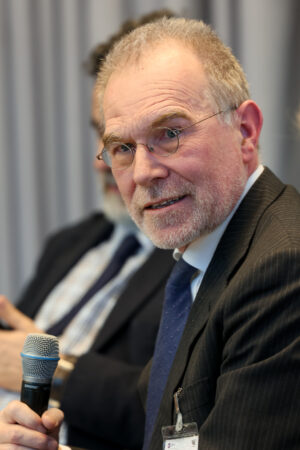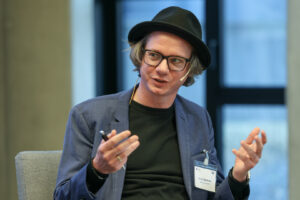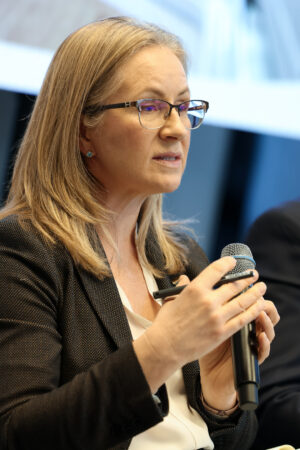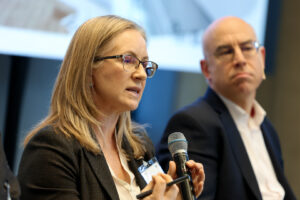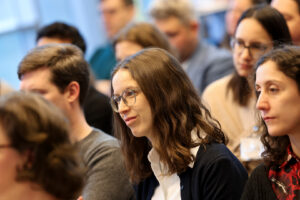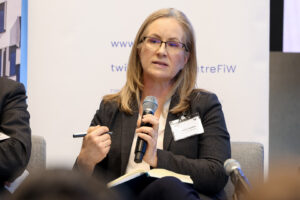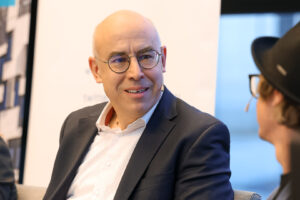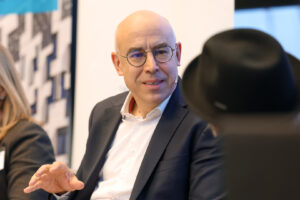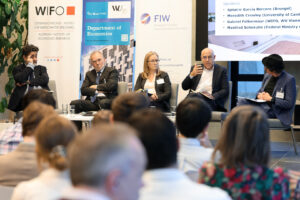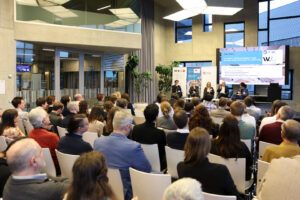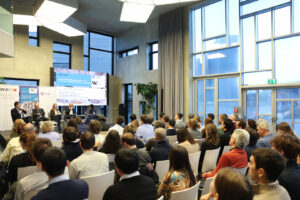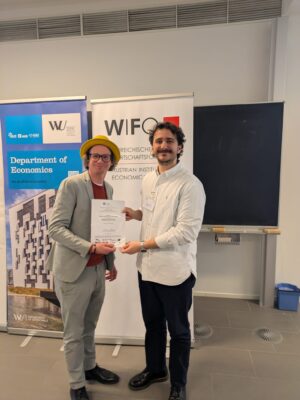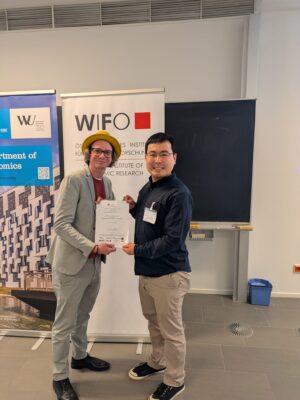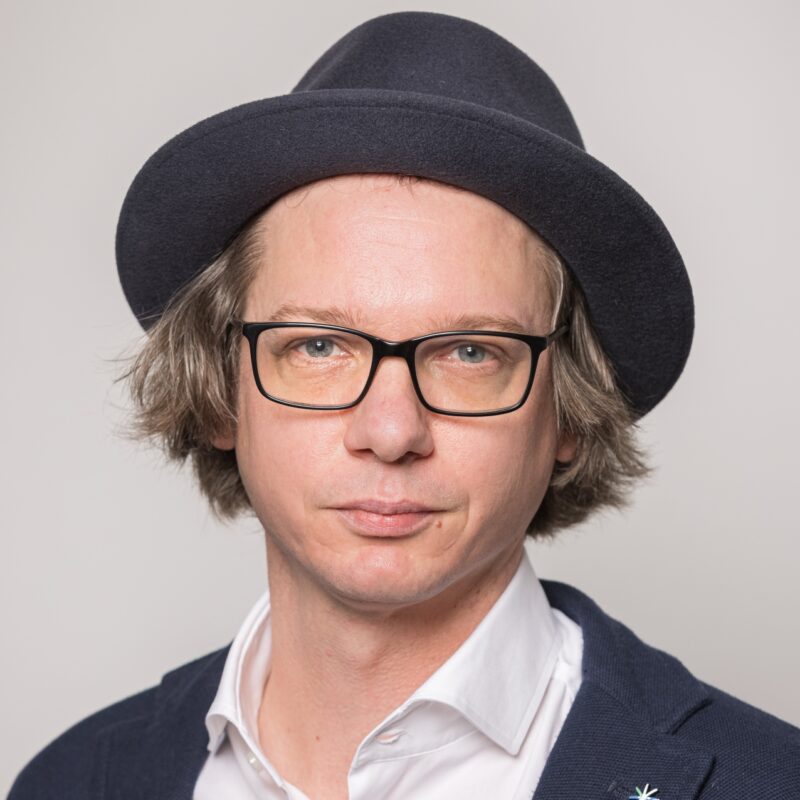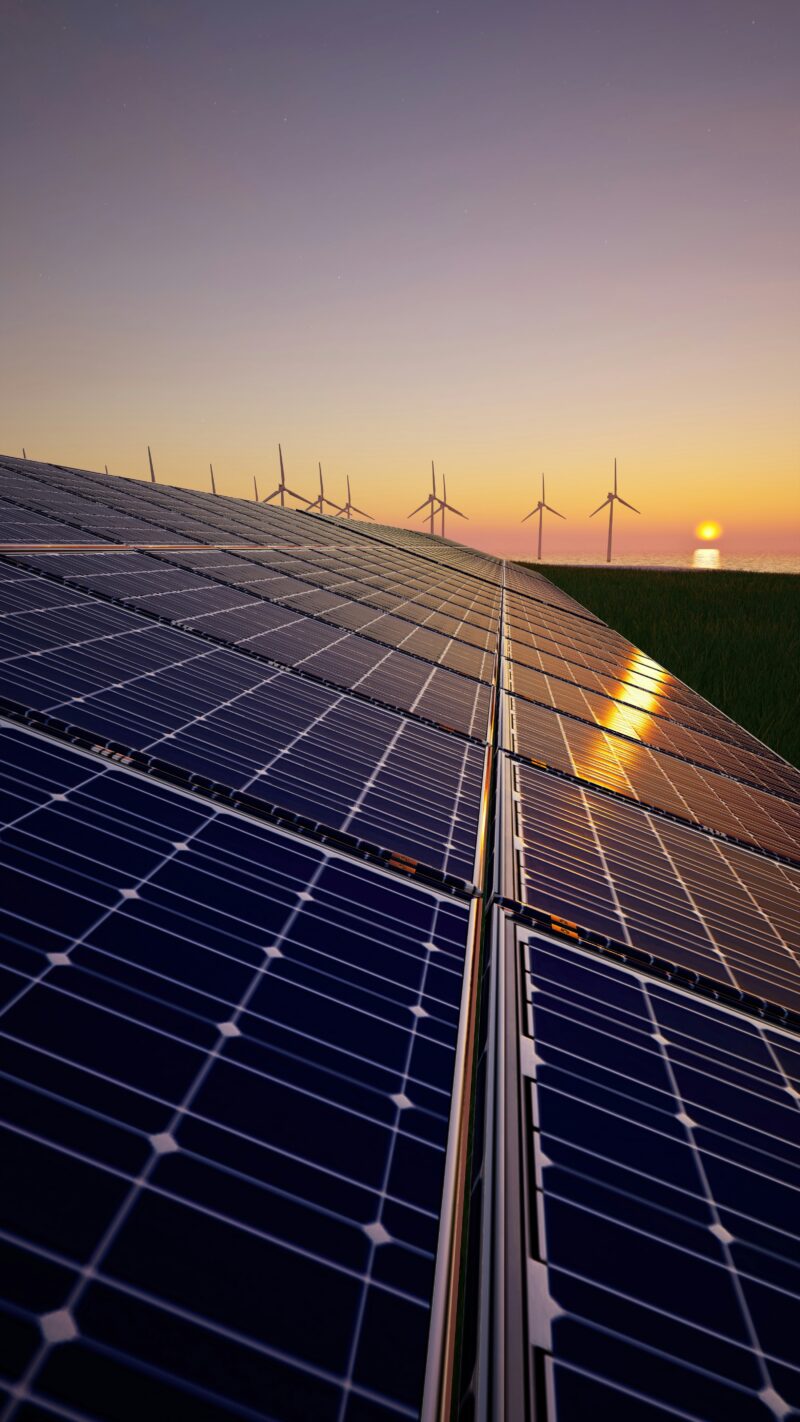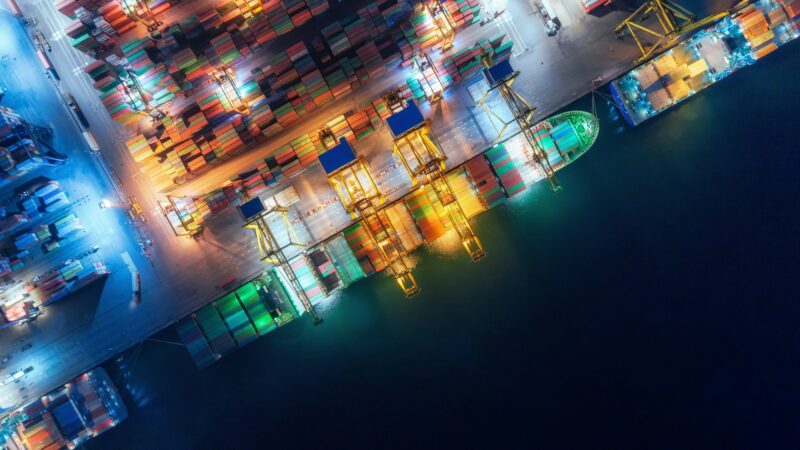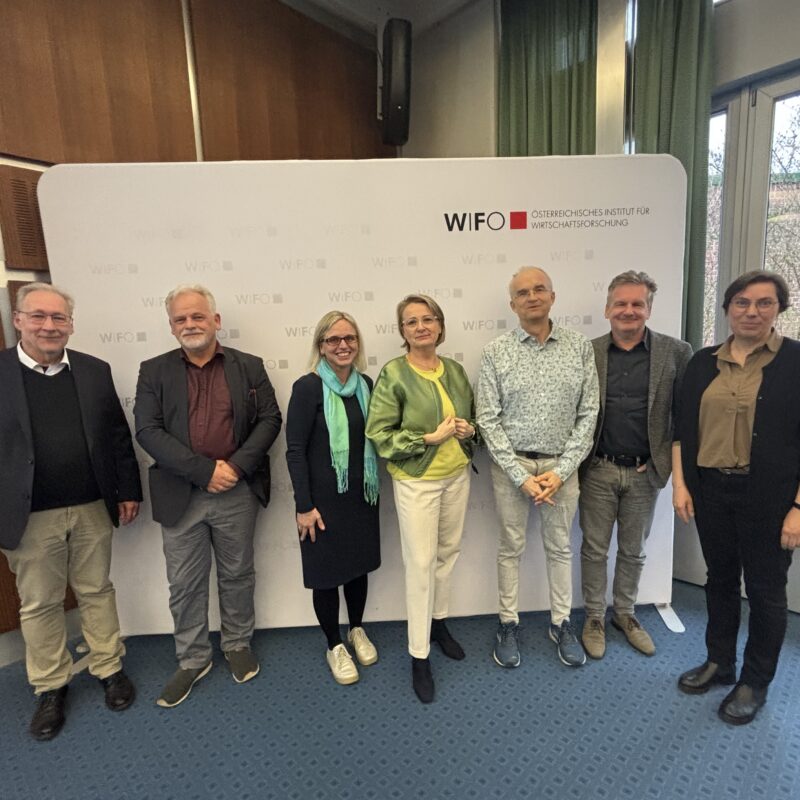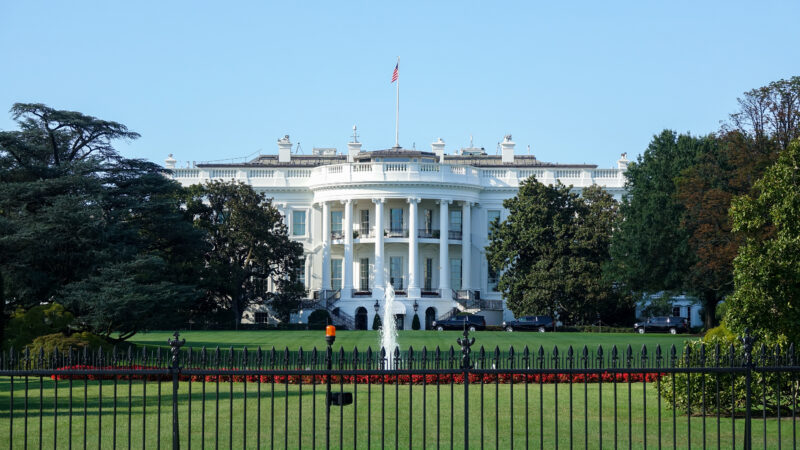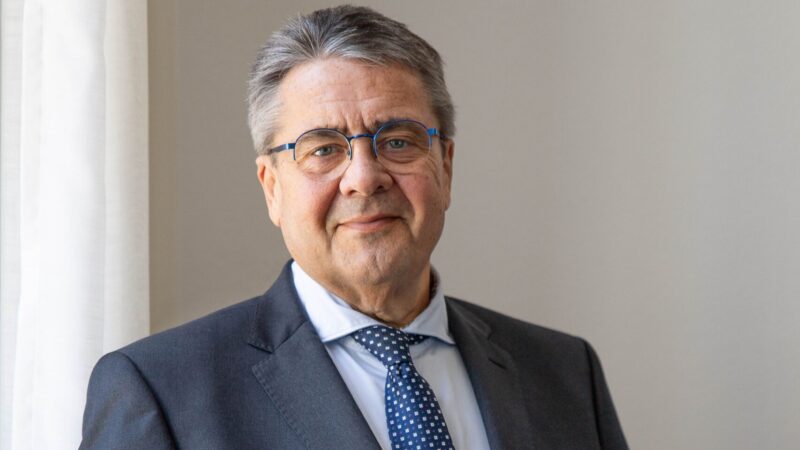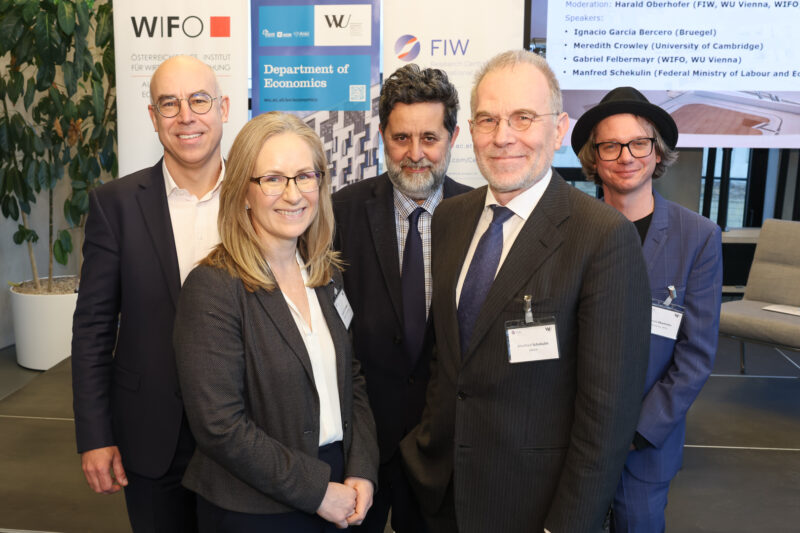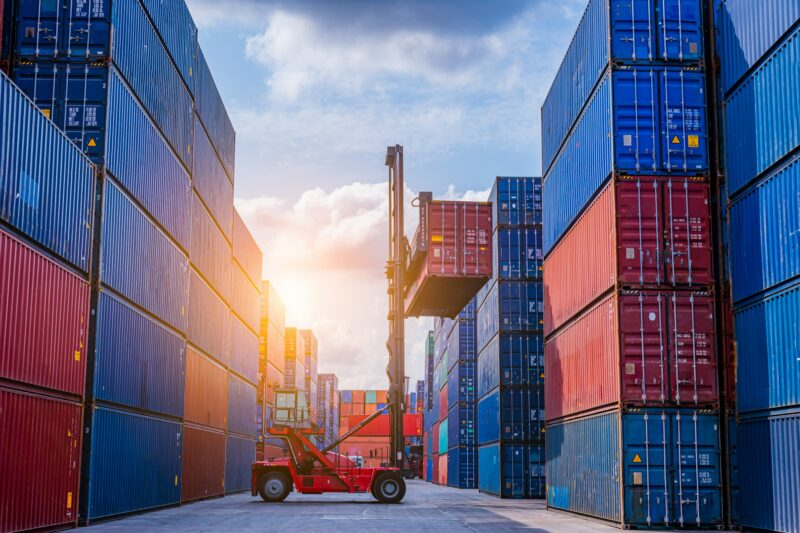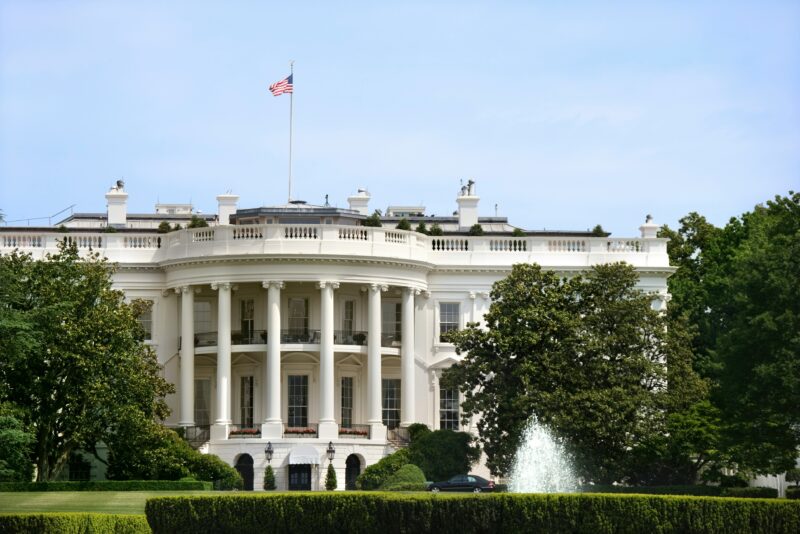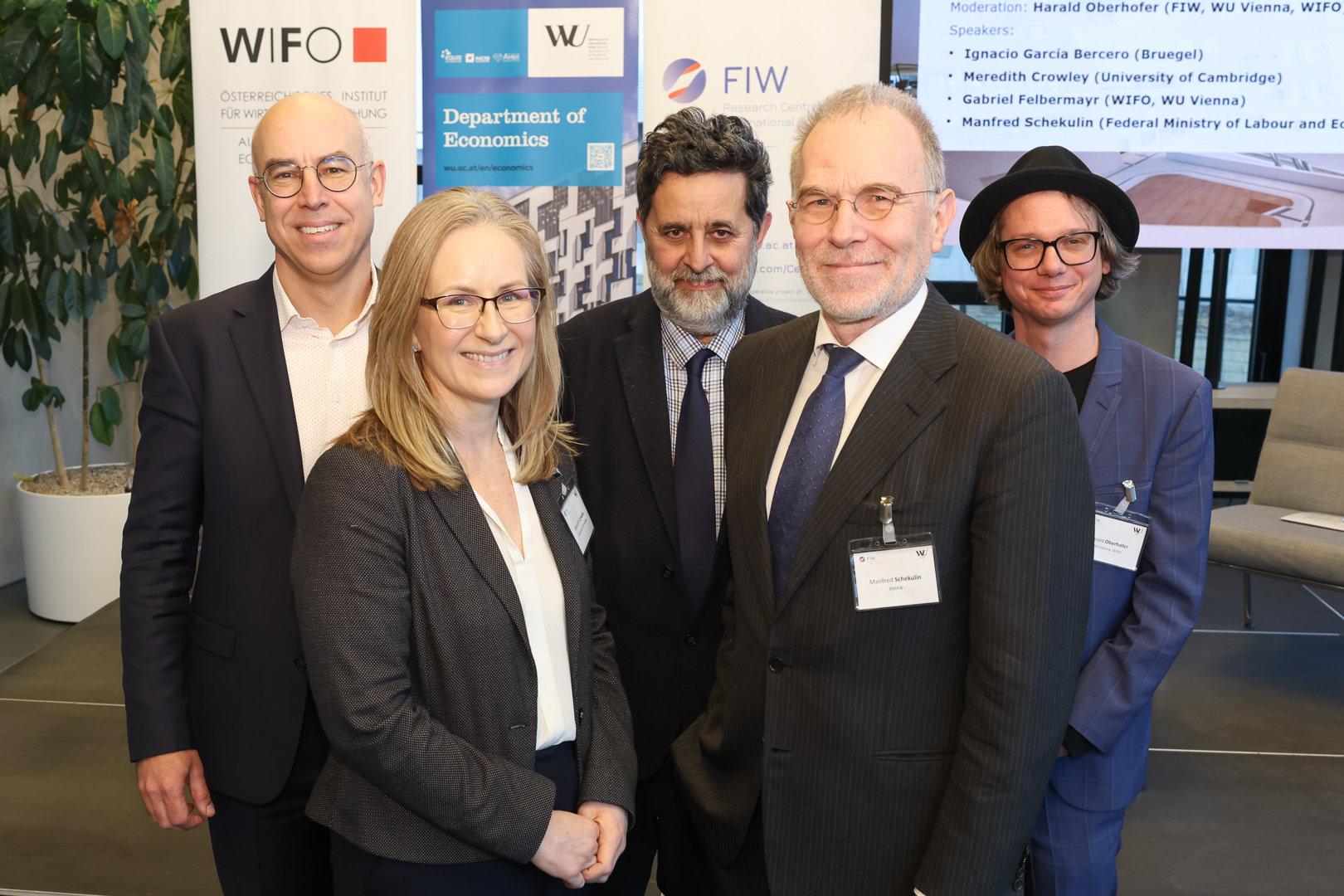
17th FIW Research Conference
A varied programme with top-class speakers and exciting discussions on the more than 50 working papers presented in the parallel sessions was offered. Participants had the opportunity to exchange views on current research findings and make new contacts. The conference was organised by Research Centre International Economics (FIW) in cooperation with the Federal Ministry of Education, Science and Research (BMBFW) and the Federal Ministry of Labour and Economic Affairs (BMAW).
The conference was opened by Cynthia Zimmermann (FIW), Head of Section for "EU and International Market Strategies" at the Austrian Ministry of Labour and Economy (BMAW) and Rupert Sausgruber (Rector WU Vienna). They emphasised the importance of the exchange between research and politics for overcoming global economic challenges.
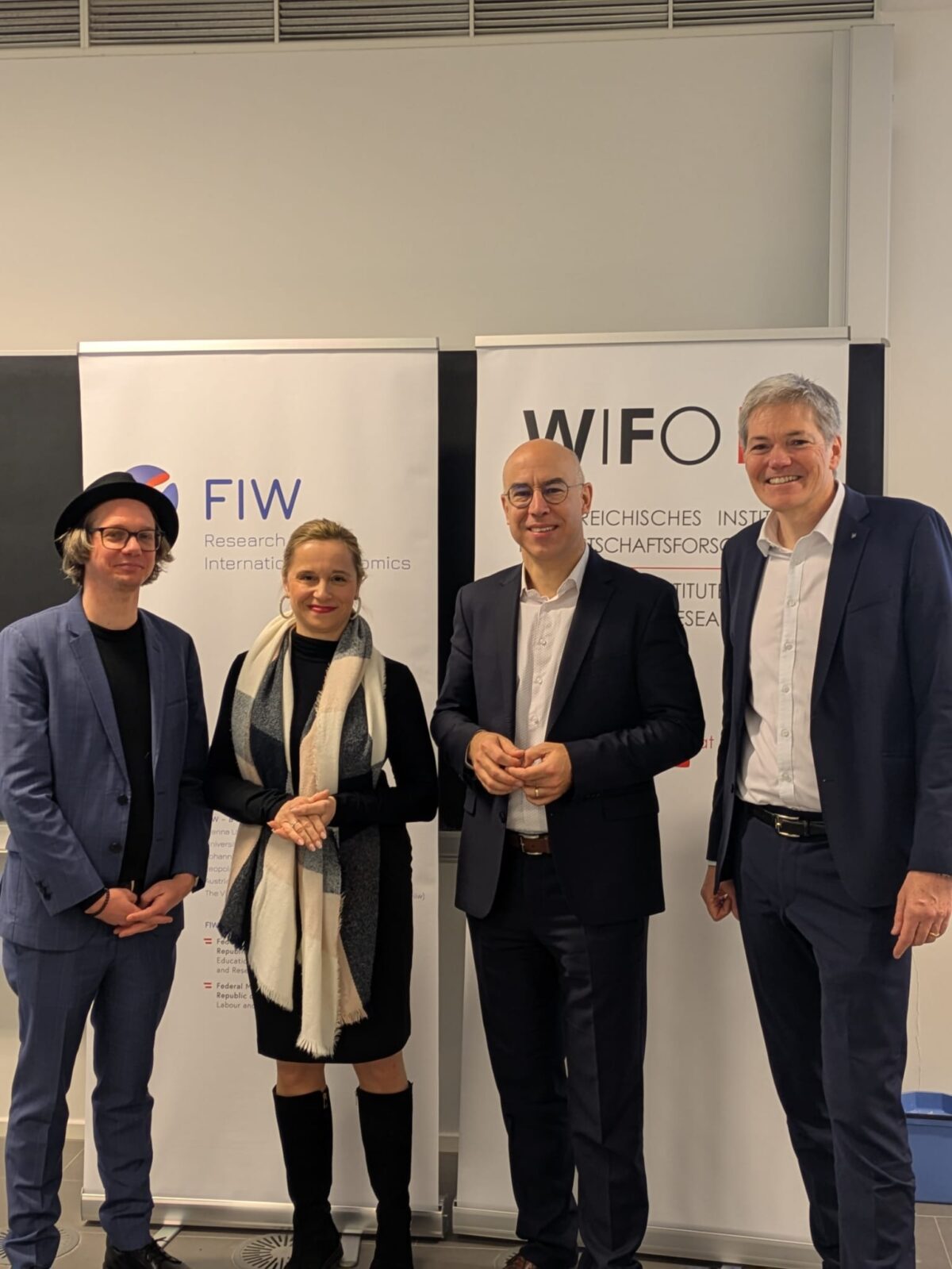
A highlight of the conference was the policy panel on "Geopolitical Shifts and Global Trade: The Role of the WTO and US Leadership". Moderated by Harald Oberhofer (FIW, WU Vienna, WIFO), Ignacio García Bercero (Bruegel), Gabriel Felbermayr (WIFO), Meredith Crowley (University of Cambridge) and Manfred Schekulin (Federal Ministry of Labour and Economics) discussed the impact of current geopolitical developments on global trade.
The panel discussed the current challenges facing the World Trade Organisation (WTO). It was noted that although the WTO is very important for the stability of world trade, it is currently in a difficult situation. One major problem is that the structure of tariffs still reflects the reality of 1994 and no major reforms have been agreed since the Uruguay Round. Nevertheless, the panellists emphasised that the WTO has achieved great success with its dispute settlement mechanism and uniform rules. In the second half of the policy panel, the discussion centred on current US trade policy and the question of how the European Union could react to announcements of new tariffs by the US President. There was consensus that any countermeasures taken by the European Union should be compatible with the WTO rules and that it would be in the EU's interest to avoid an escalating trade dispute.
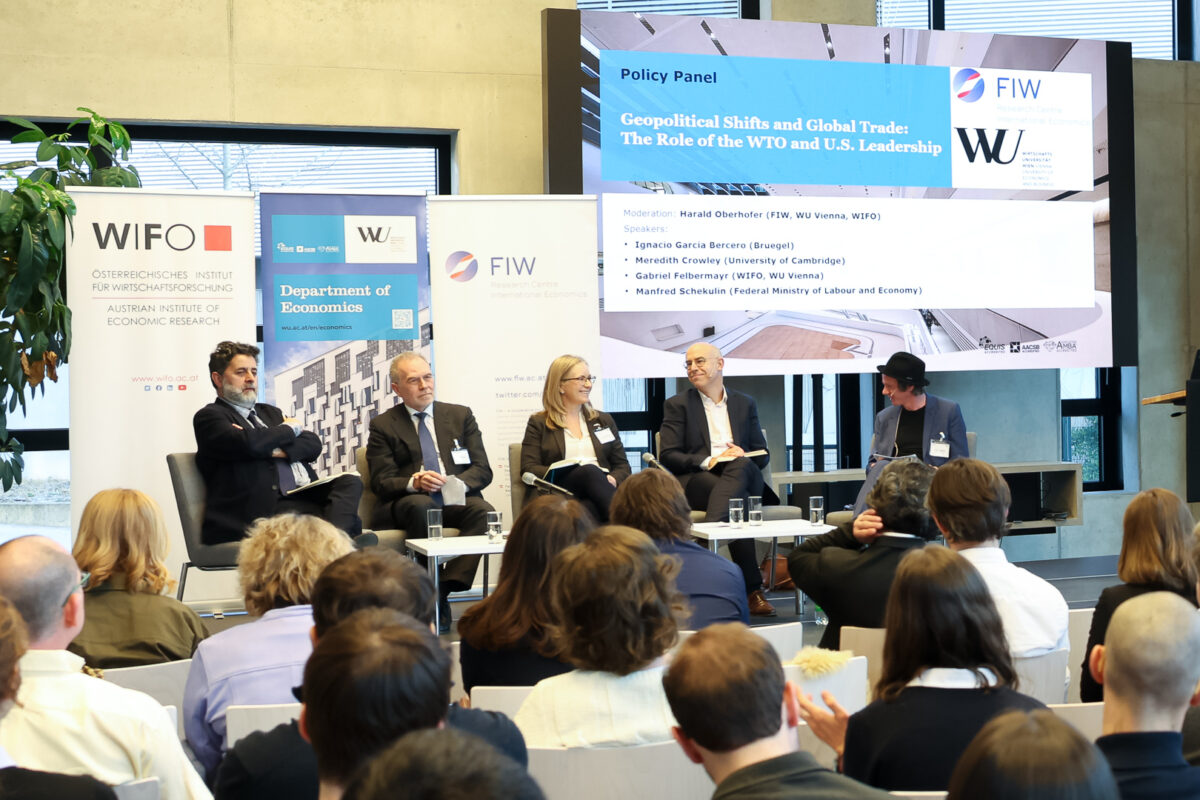
Meredith Crowley (University of Cambridge) gave the first keynote lecture on "The Future of Trade in a Fragmenting World". Based on 2 current research projects, Crowley demonstrated two different methodological approaches to analyse the effects of increasing fragmentation of the international trading system.
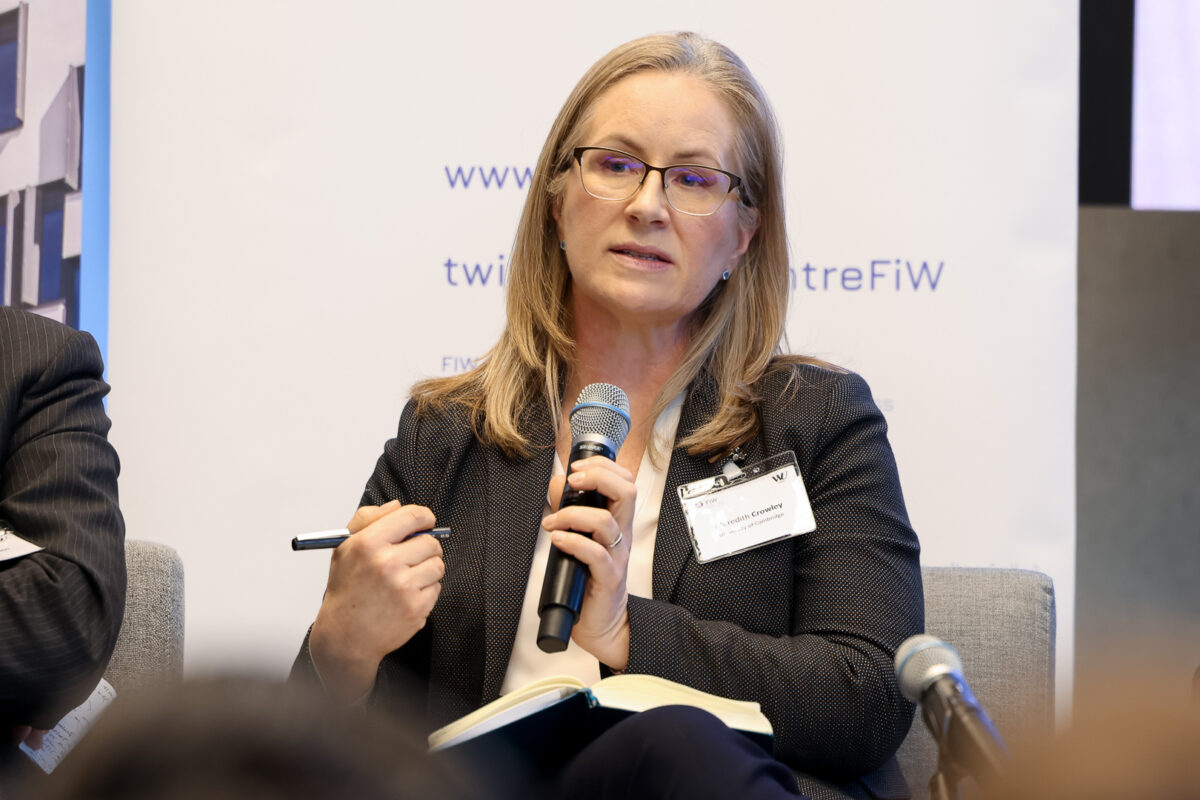
The second keynote lecture was given by Philip Lane, Member of the Executive Board of the European Central Bank (ECB). He spoke about the importance of the international economy for the work of the ECB. He explained that Europe is not alone, but closely connected to the rest of the world – not only through trade, but also through networks and the exchange of knowledge and technology. Of particular interest to him was the question of how quickly artificial intelligence (AI) will influence productivity in Europe and how data and information will be exchanged across borders. He illustrated this with a series of key figures on important long-term trends in the global economy. Finally, Lane presented the ECB's latest modelling calculations with various scenarios on the introduction of new trade barriers.
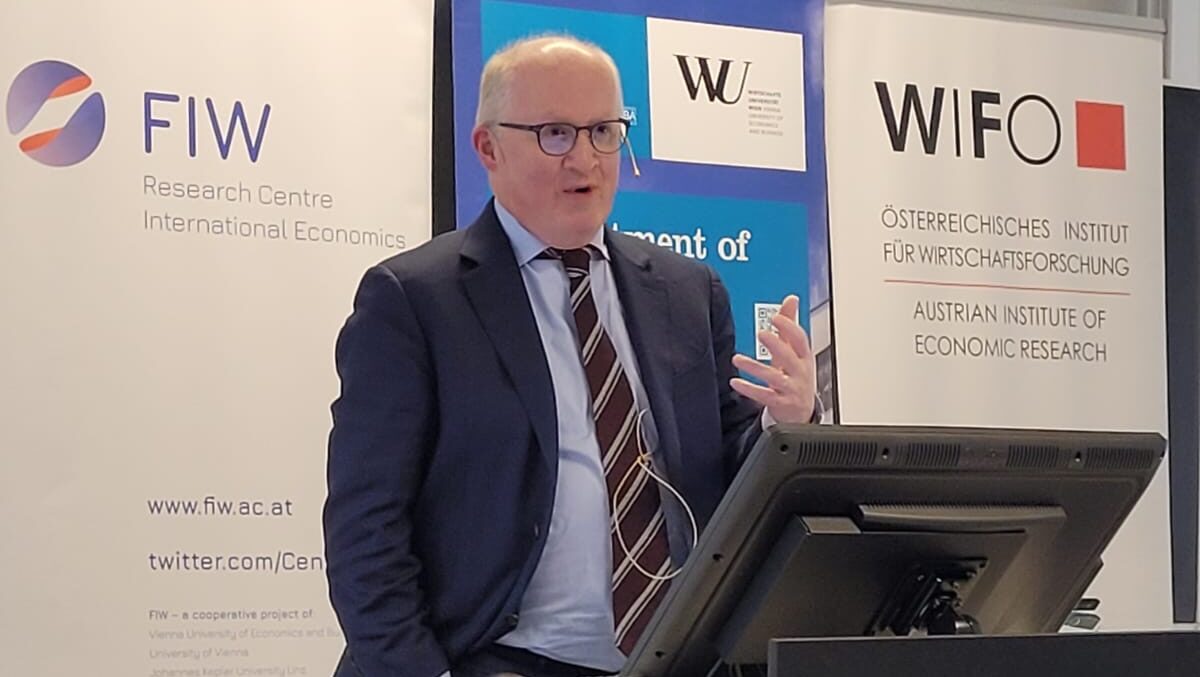
At the end of the conference, two prizes were awarded for outstanding academic achievements. The "Young Economist Award" went to Edoardo Tolva for his paper "Oligopolies in Trade and Transportation: Implications for the Gains from Trade". The "Best Paper Award" for the best contribution to this year's conference went to Toshiaki Komatsu (with co-author Emmanuel Dhyne) for the paper "Job Ladder and Dynamic Monopsony in Pro-production Networks".
